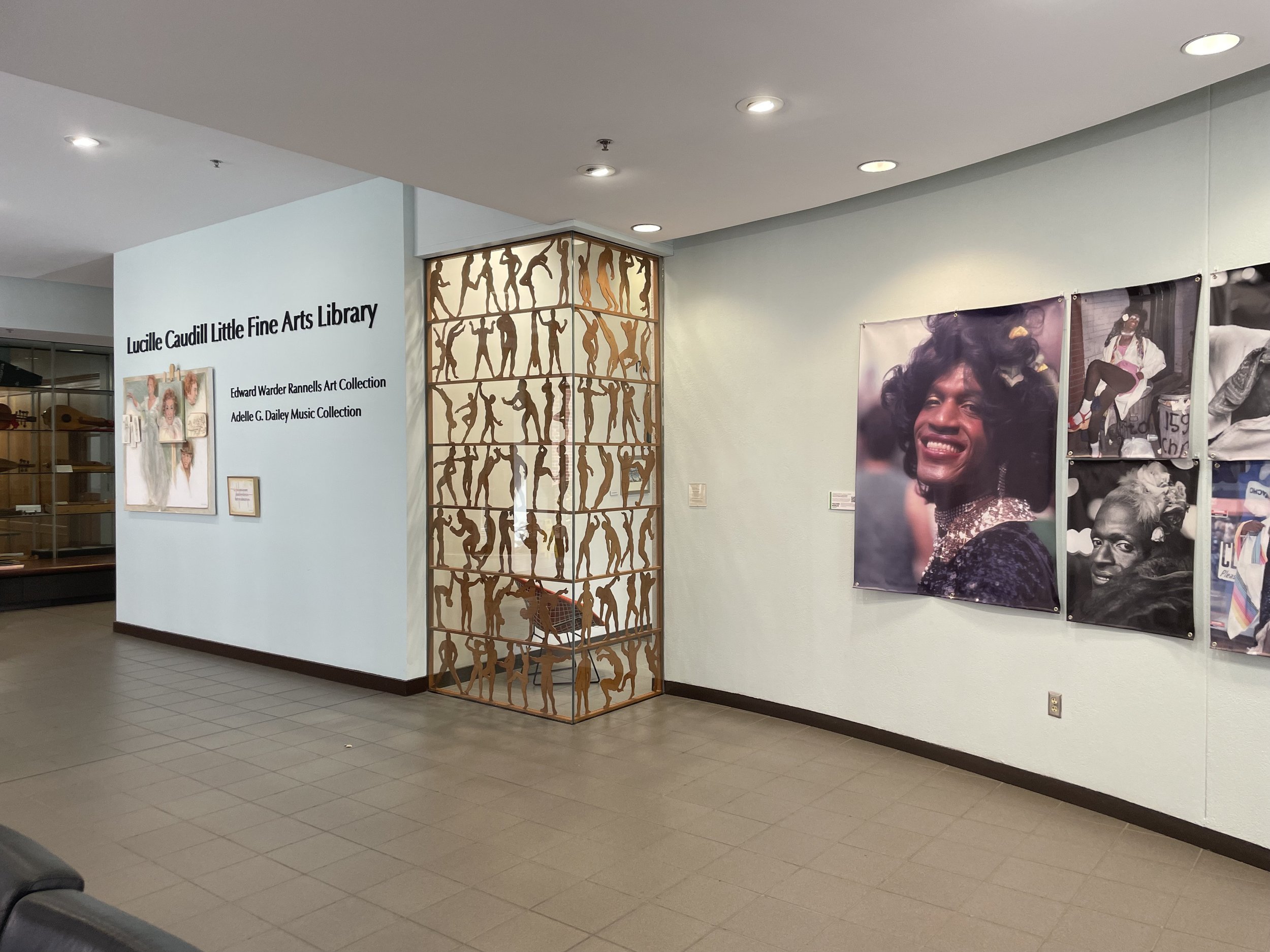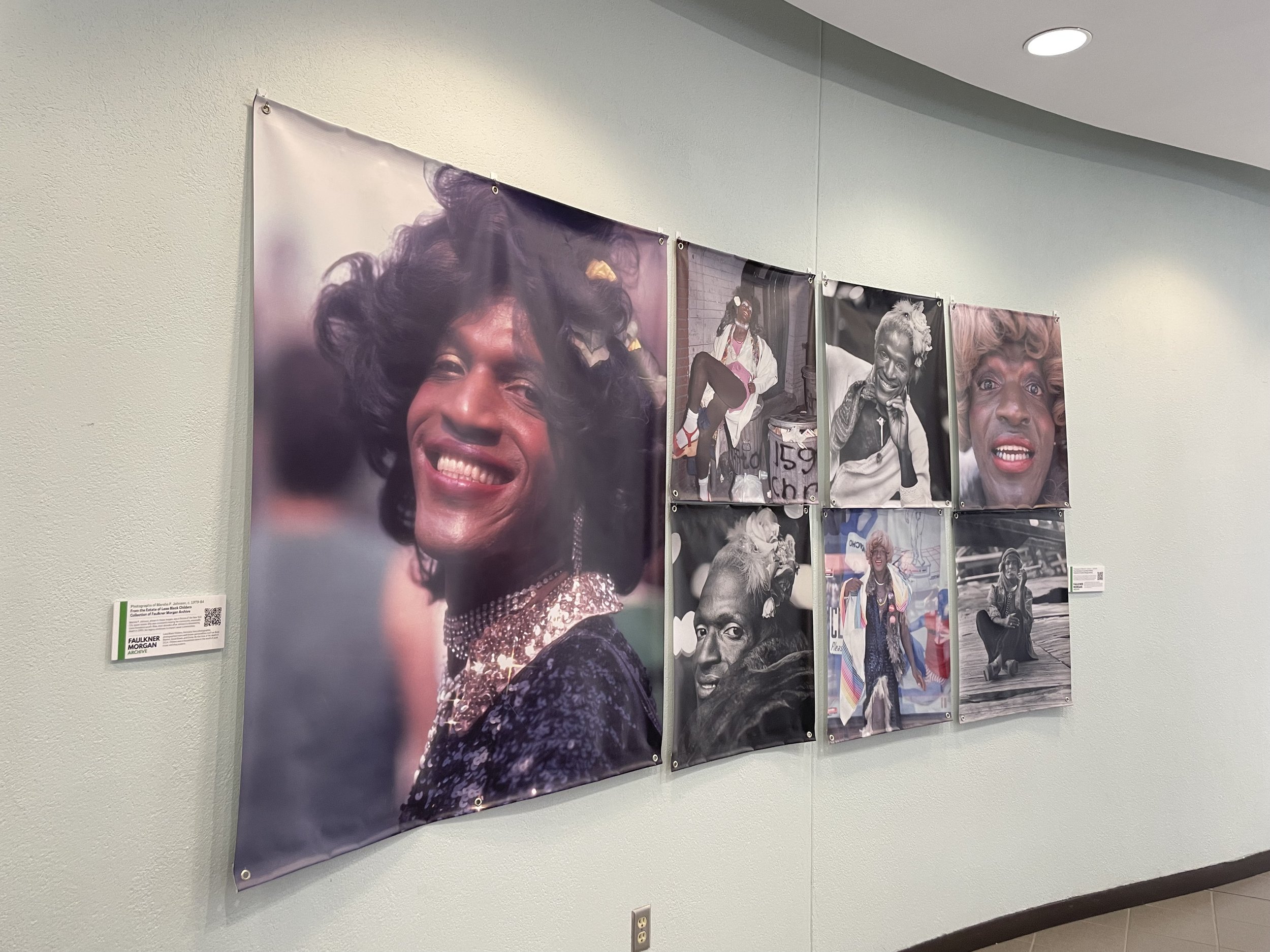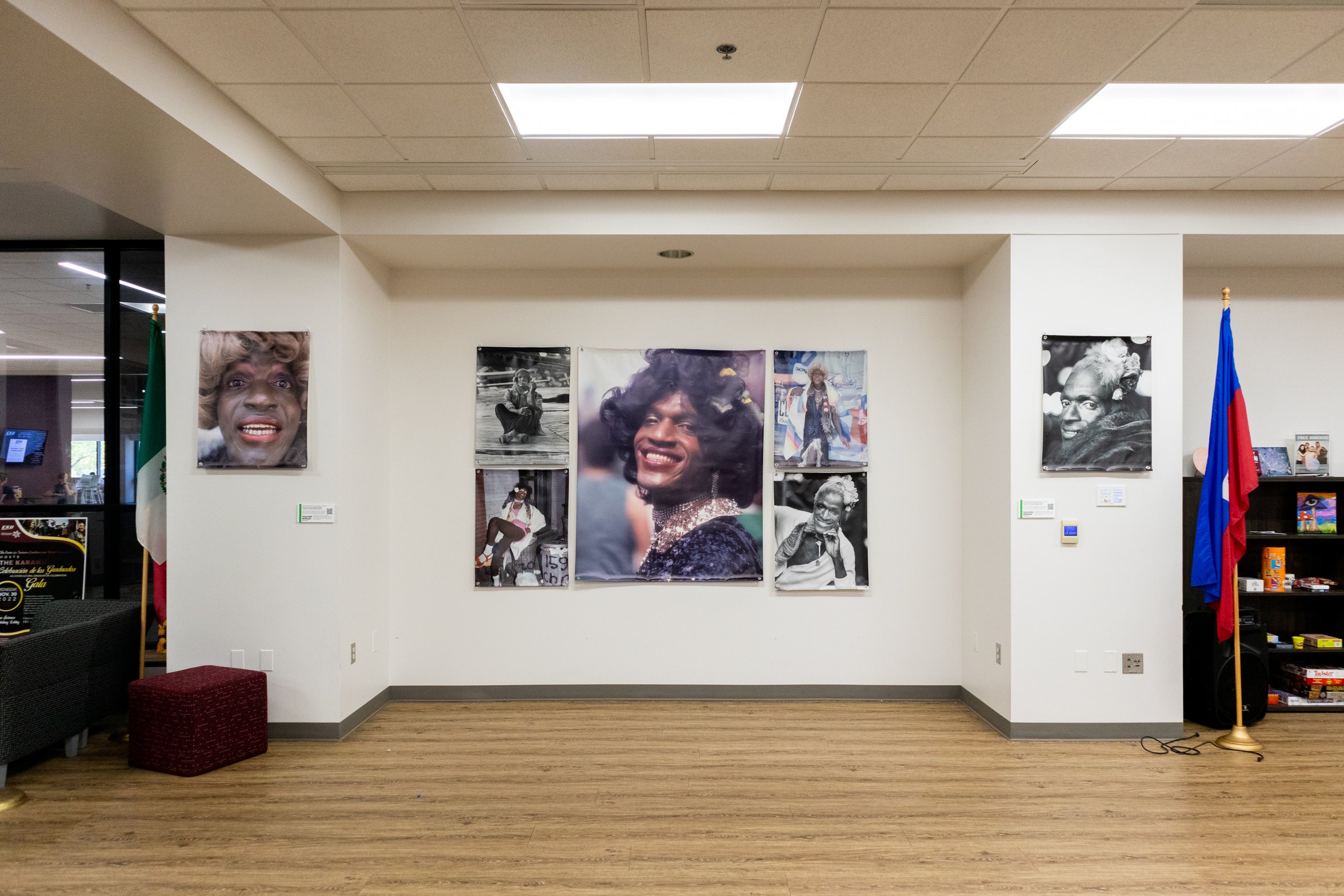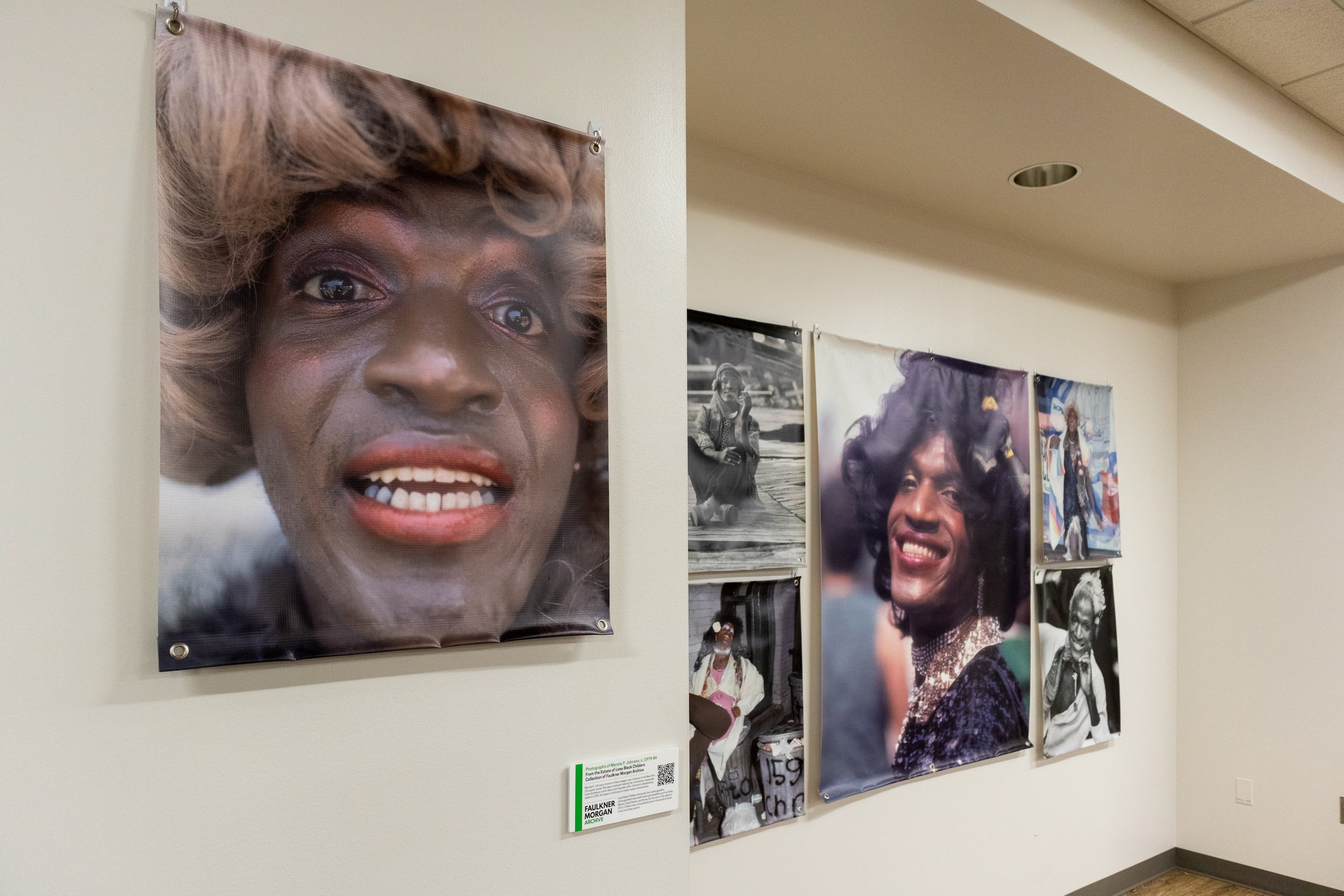
Here, Black, Femme, & Queer
Images, stories, and history of Black LGTBQ+ Kentuckians
This exhibition of images shines a light on the lives and legacies of Black, femme, & queer people from right here in Kentucky. From the fiery performances of Toni LaFlame to the downtown strolls of Sweet Evening Breeze, these individuals have played a crucial role in making Lexington a safer space for the LGBTQ+ community.
Some of these images were collected through Facebook posts and messages from members of Lexington’s queer community while most are from the collections of the Faulkner Morgan Archive. FMA shares Kentucky’s lesbian, gay, bisexual, trans, and queer history. Founded in 2014, they are dedicated to telling Kentucky’s LGBTQ story. The Faulkner Morgan Archive currently houses 15,000 items and more than 250 hours of recorded interviews. Their collections span 200 years of history, representing individuals, events, and institutions across Kentucky’s diverse LGBTQ spectrum, creating a rich resource for activists, scholars, artists, and museums. You can help them continue to preserve stories like this by visiting faulknermorgan.org.
This project is continuing to expand, so if you have any images, stories, or history that you would like to share, please reach out! Send any information you have on Black, femme, & queer Kentuckians to josh@itsjoshporter.com.
Hosting Venues:
December 3 - 28, 2024
Lussi Brown Coffee Bar – Lexington, KY
September 27 - November 17, 2024
Lexington Public Library – Lexington, KY
August 31 - September 27, 2024
Bolivar Art Gallery – Lexington, KY
June 29, 2024
Lexington Pride Festival – Lexington, KY
April 5 - June 5, 2024
Transylvania University – Lexington, KY
October 1, 2023 - March 31, 2024
Eastern Kentucky University – Richmond, KY
February 3 - September 8, 2023
University of Kentucky – Lexington, KY
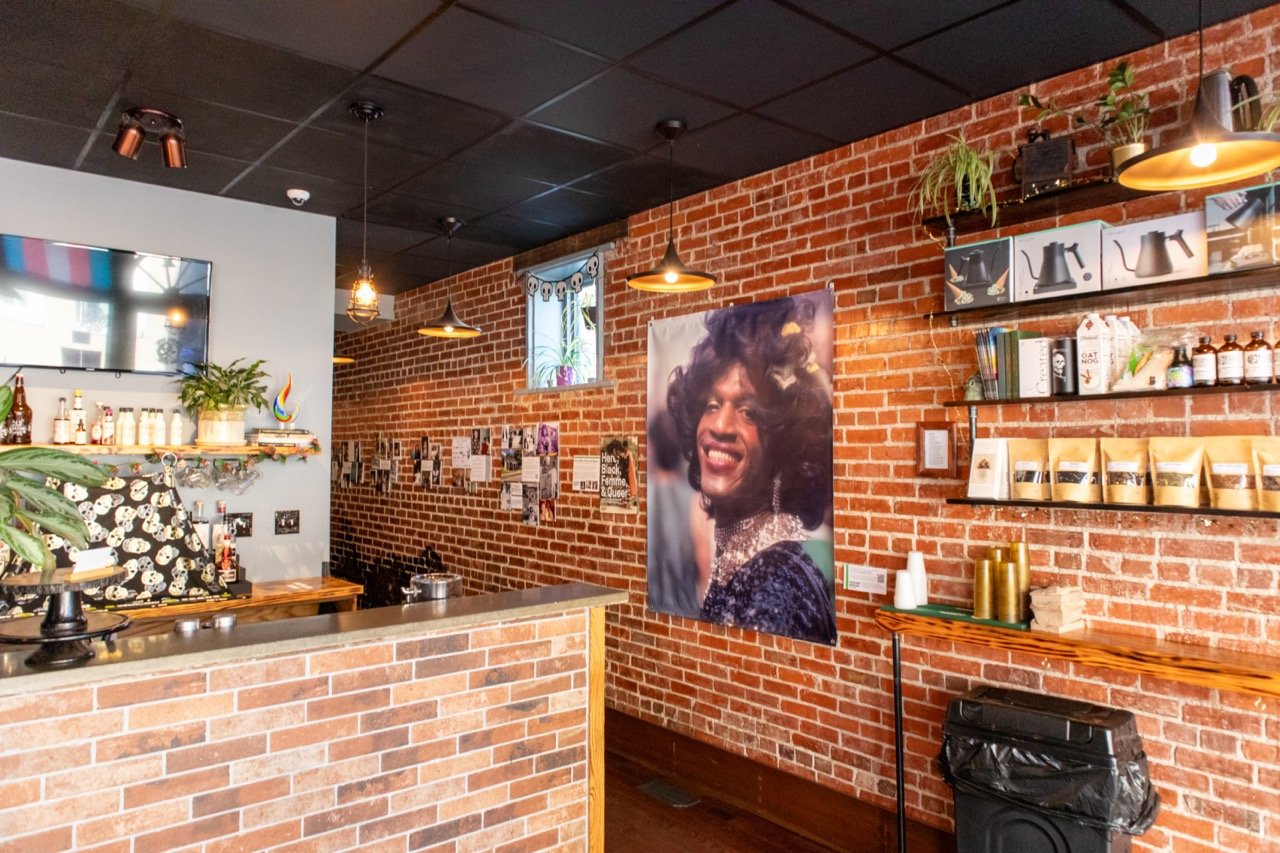
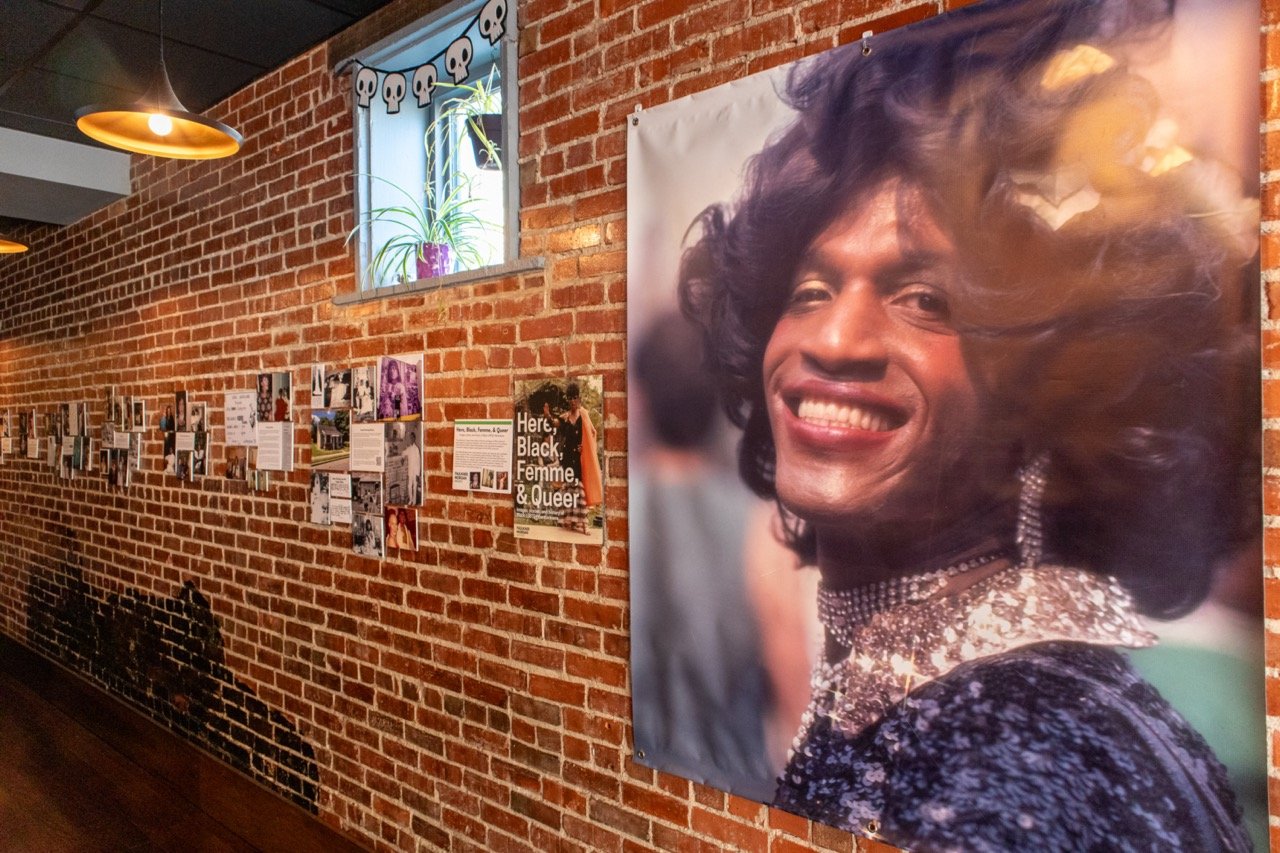
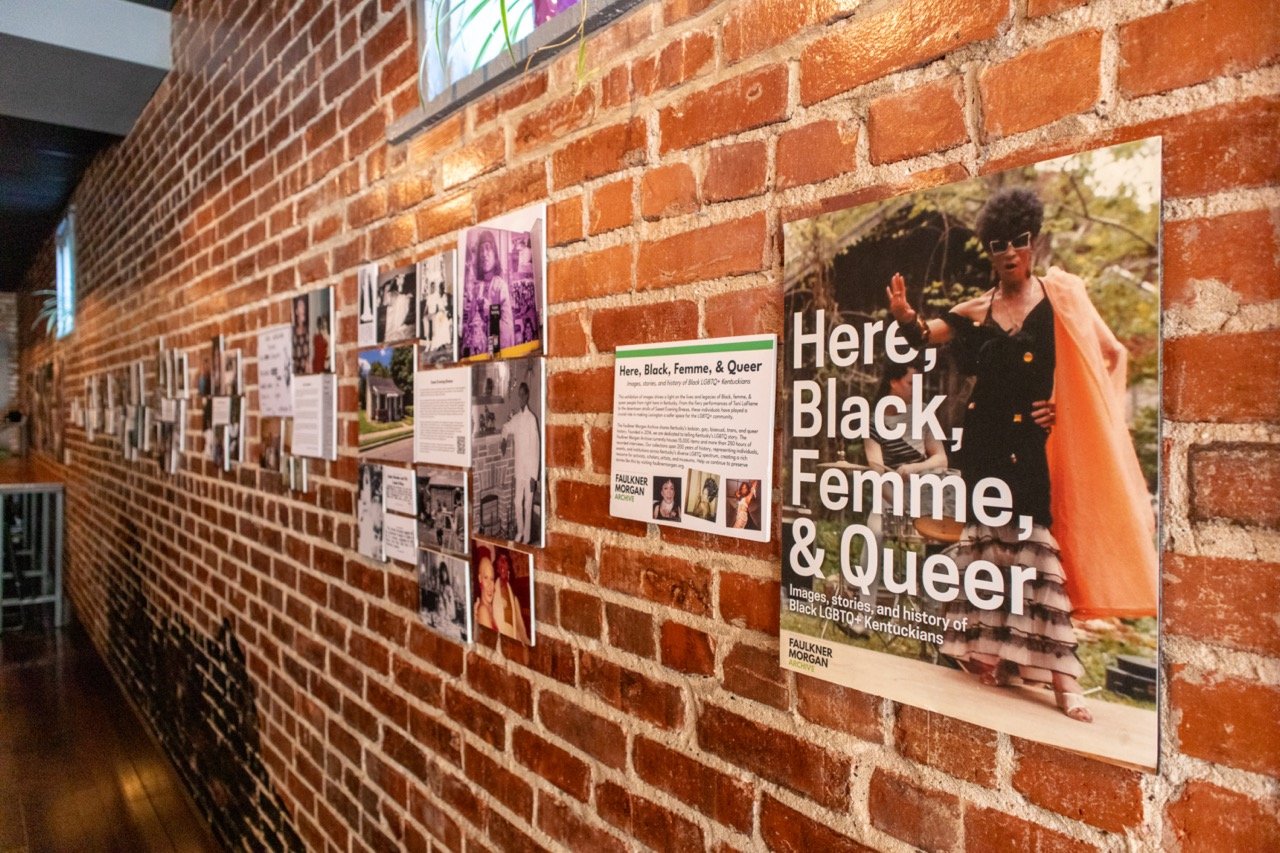
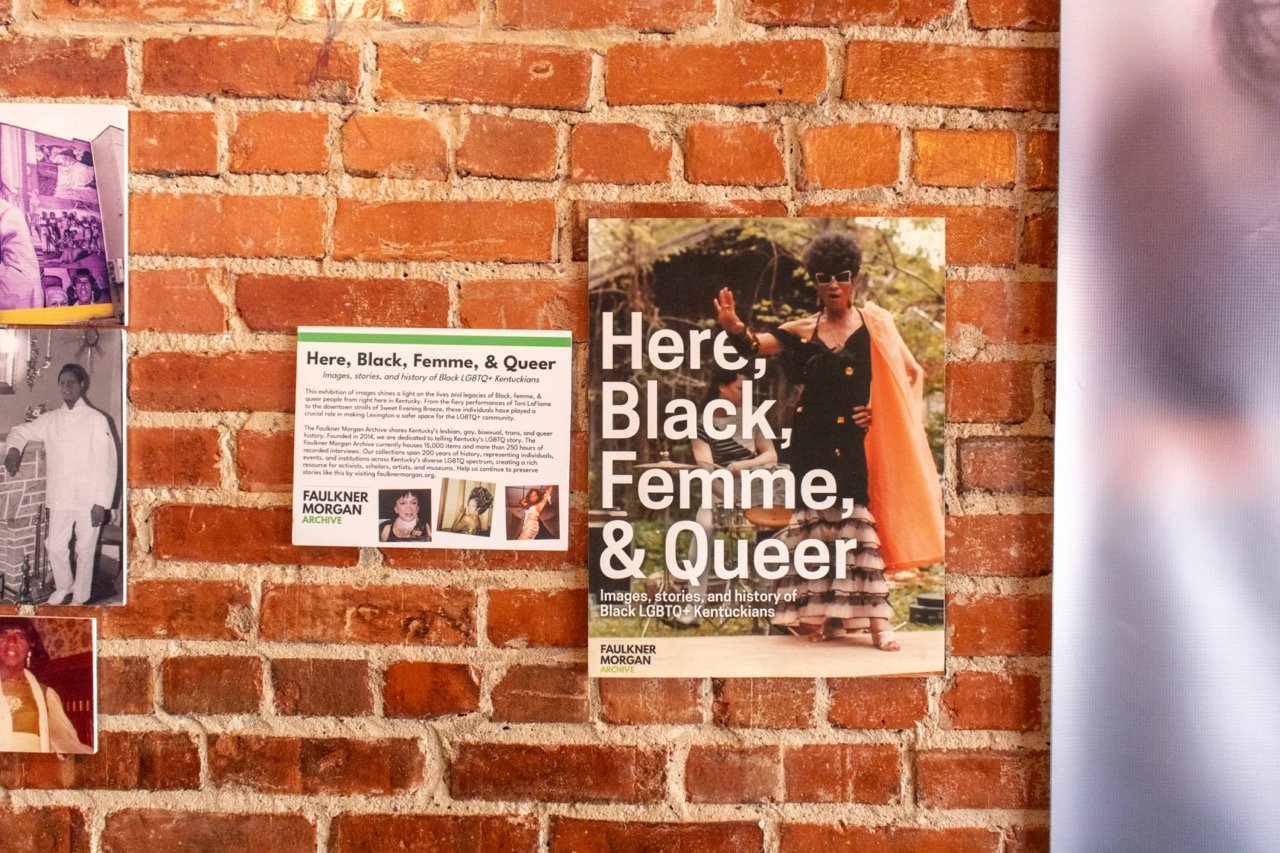
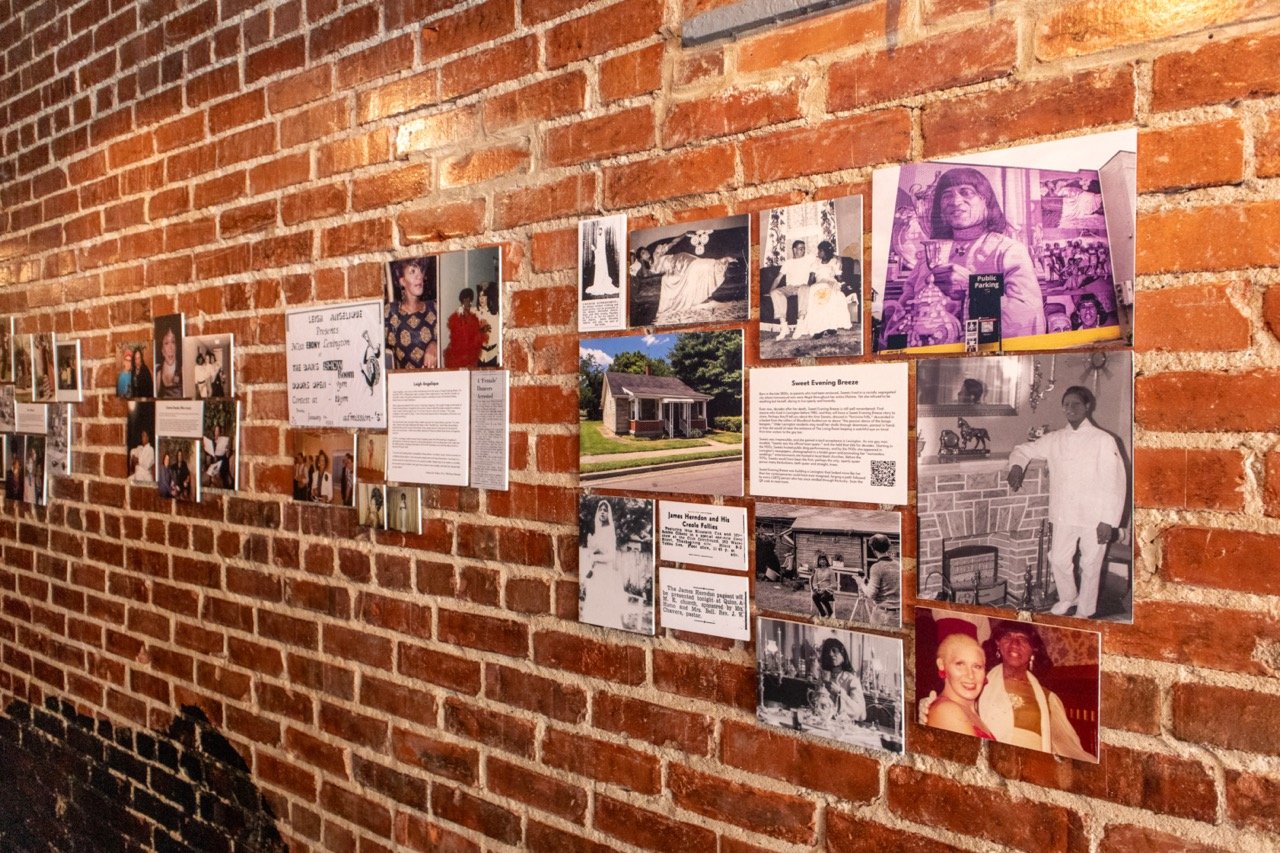
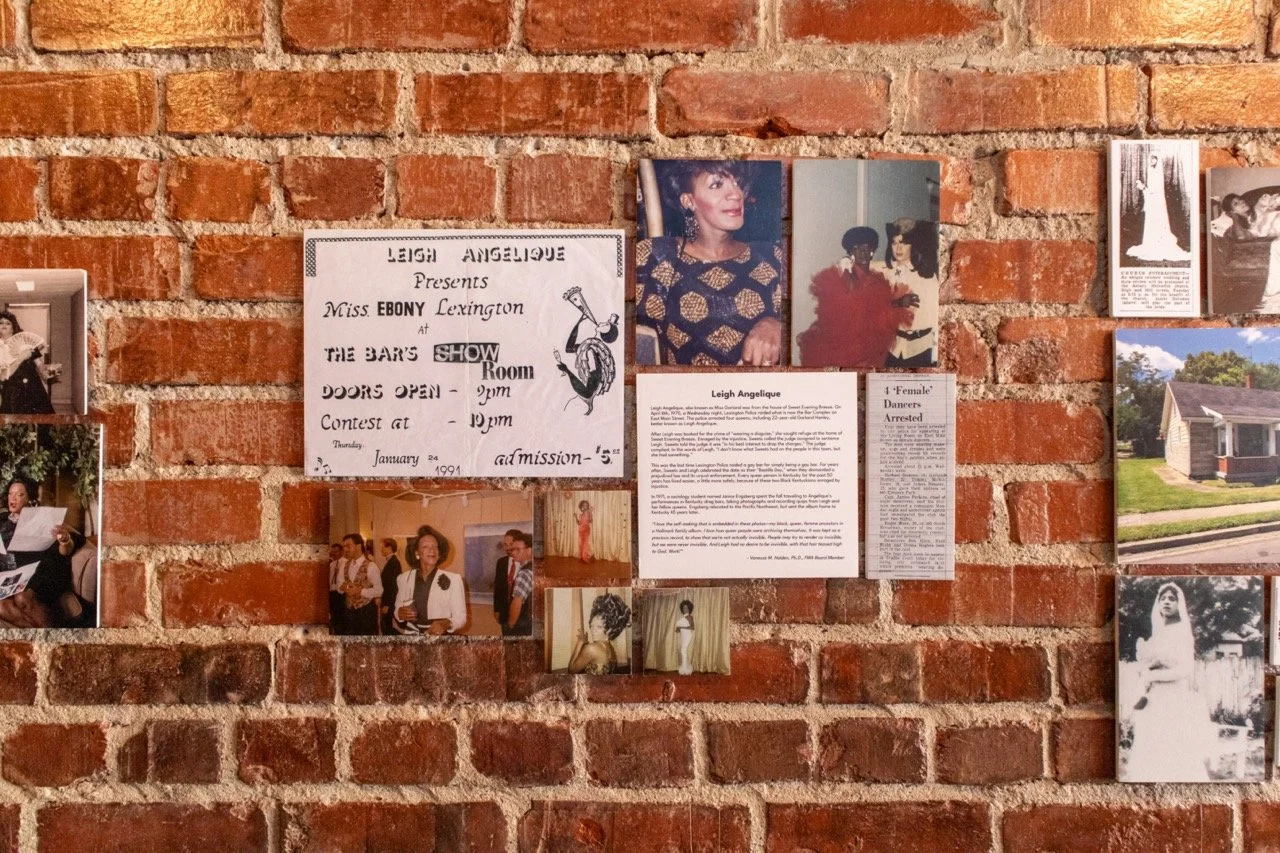
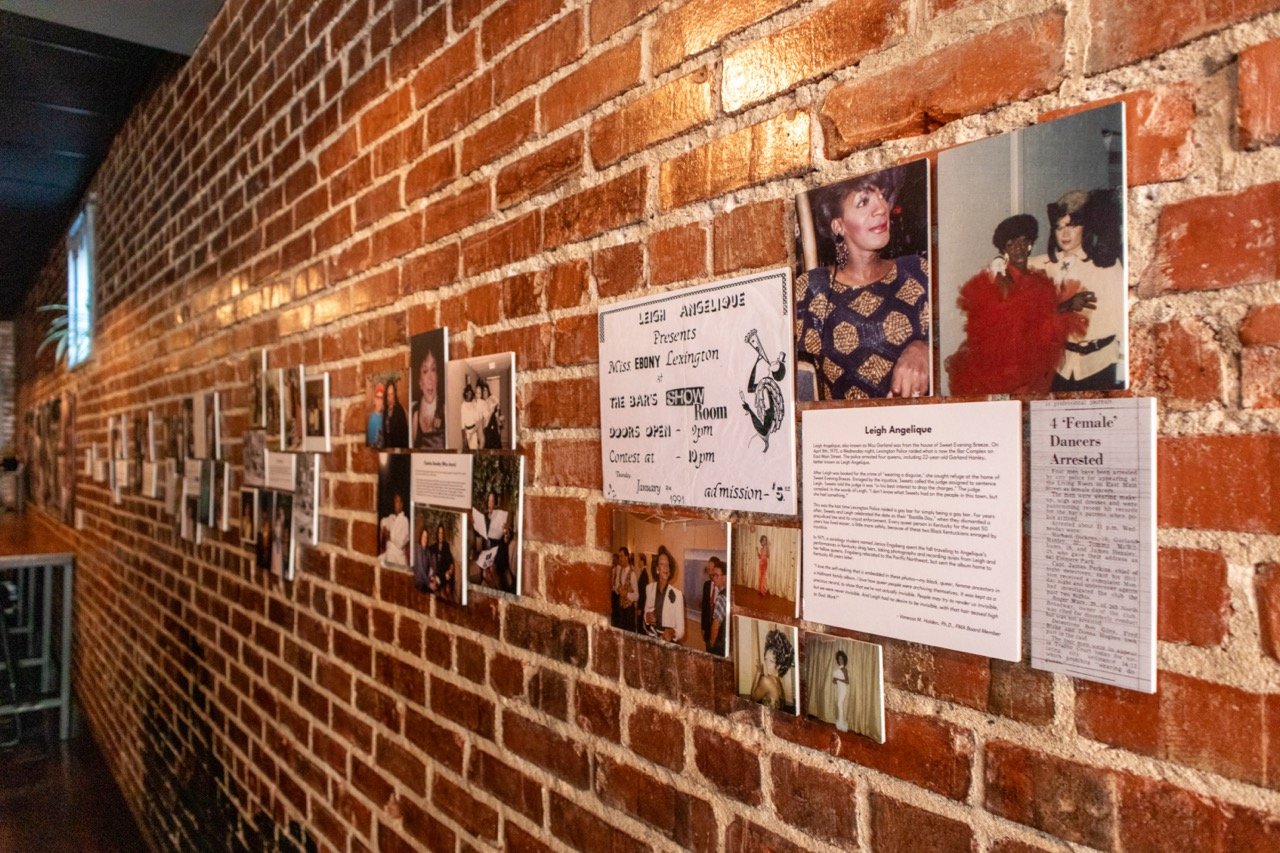
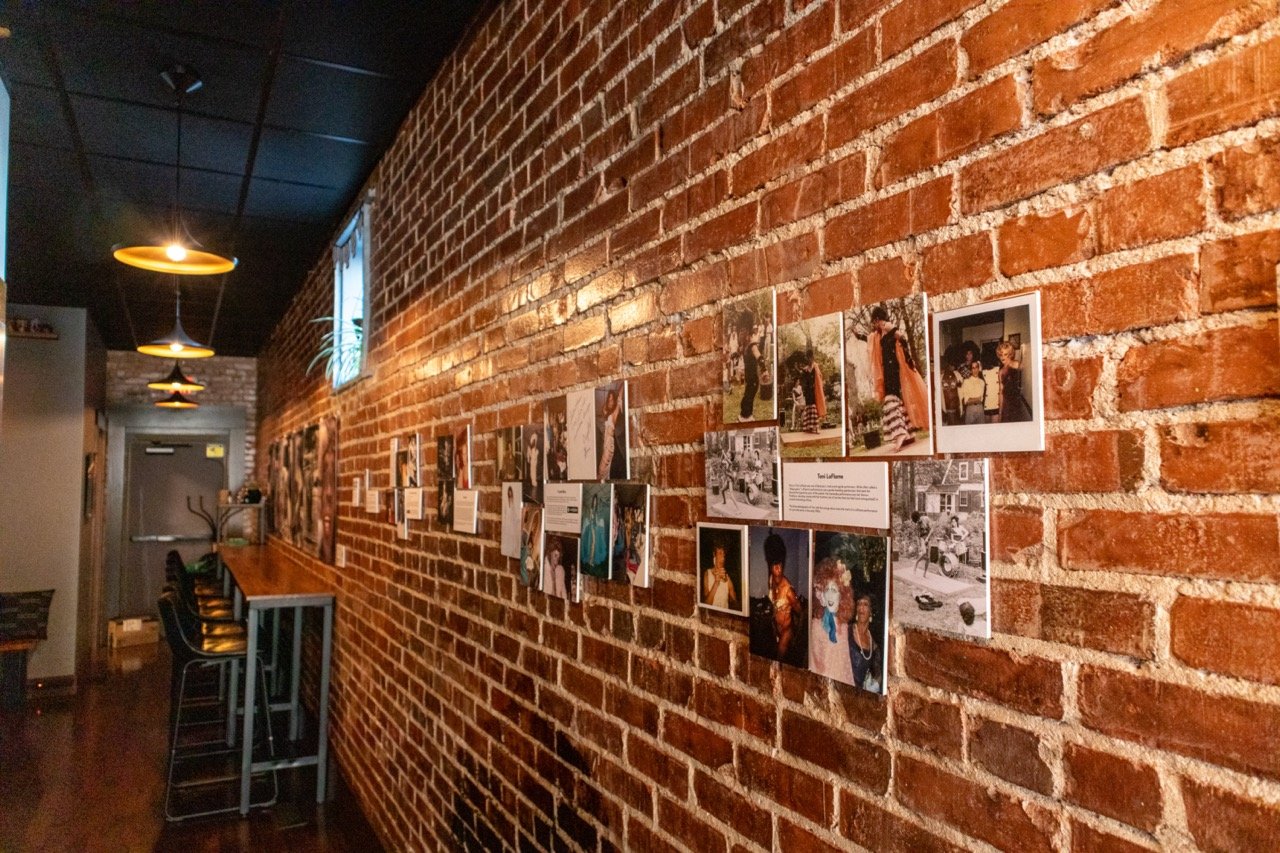
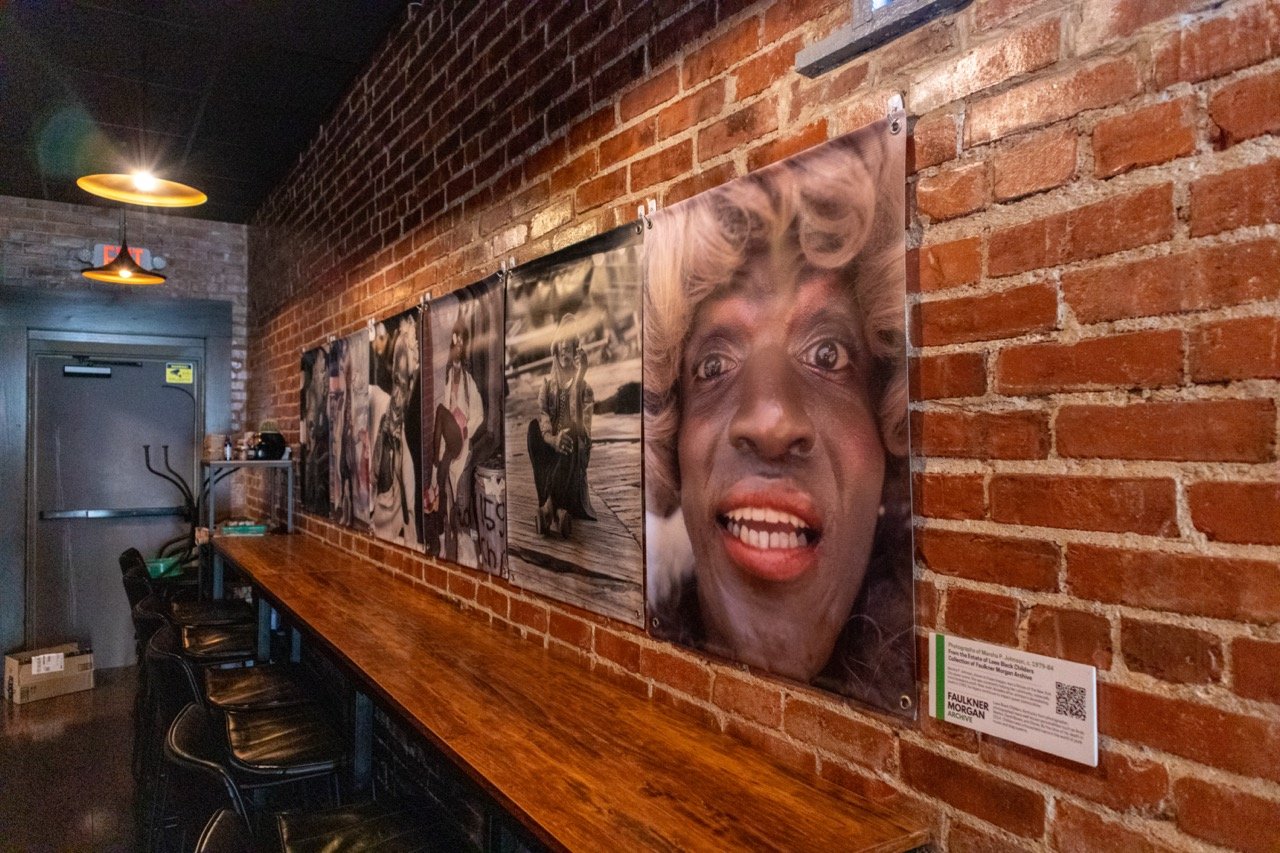
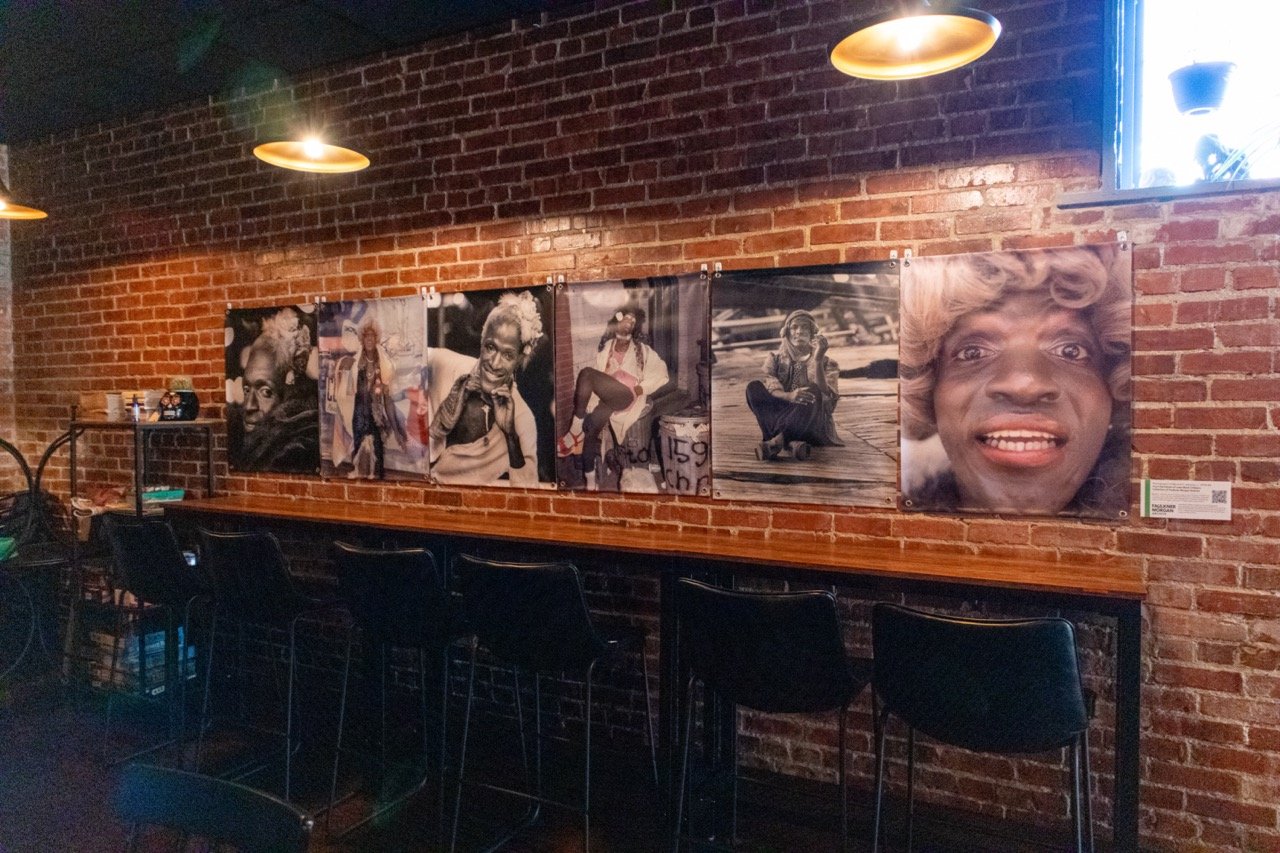
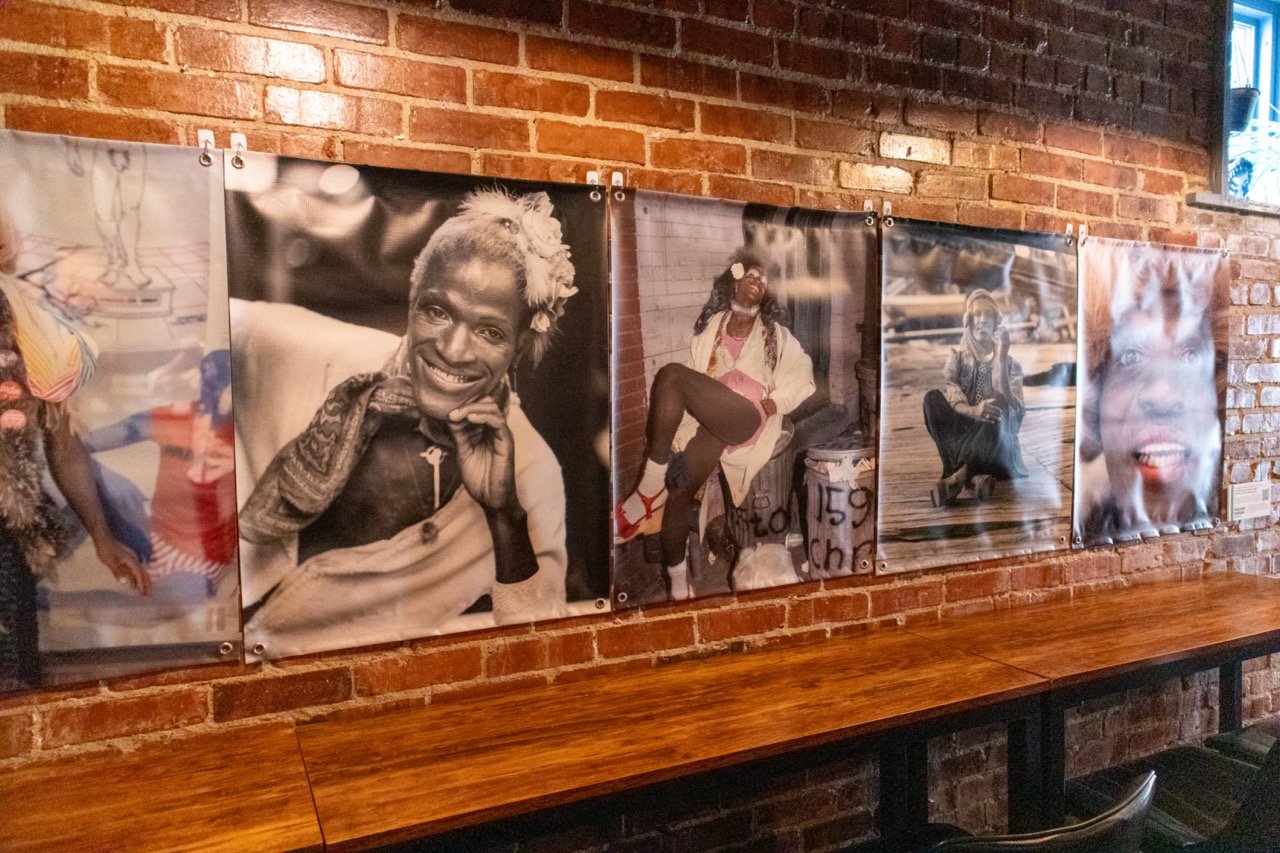
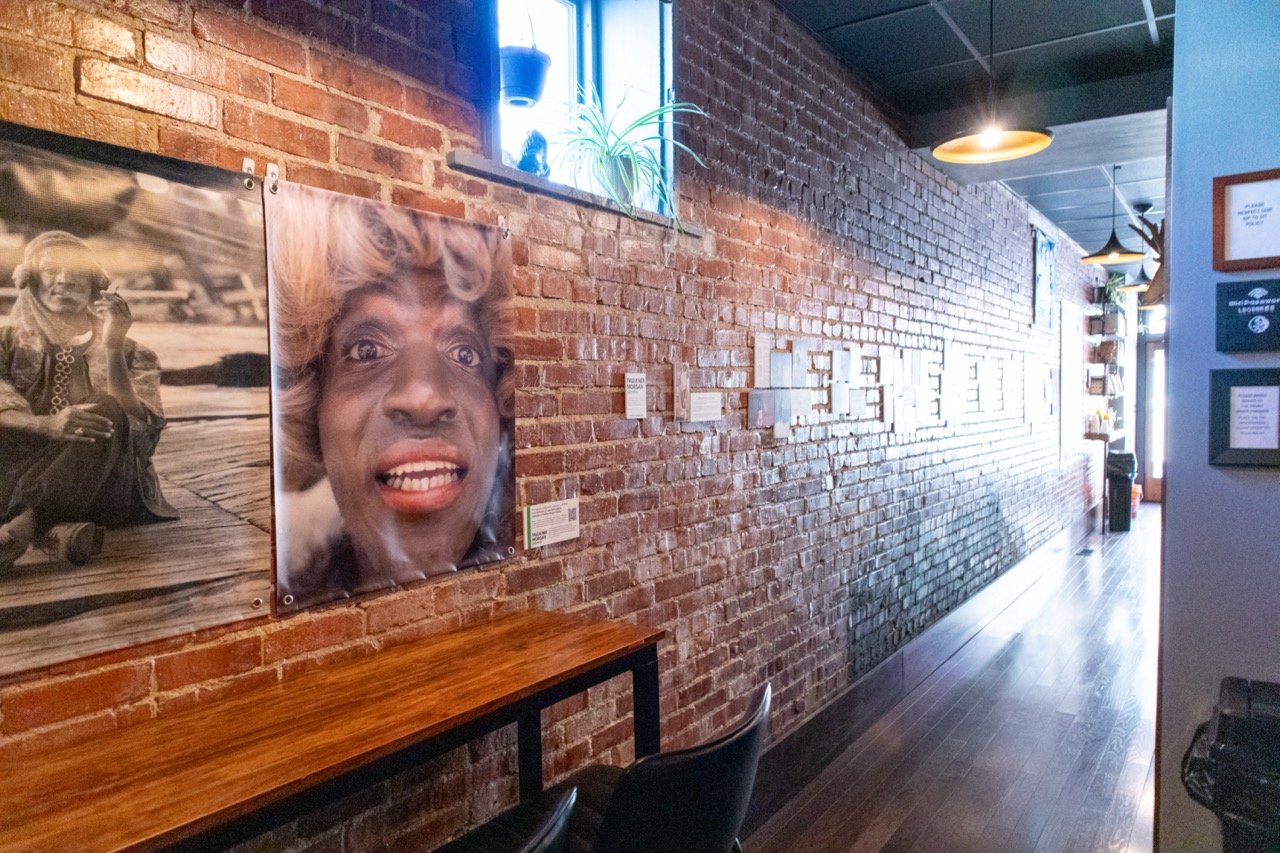





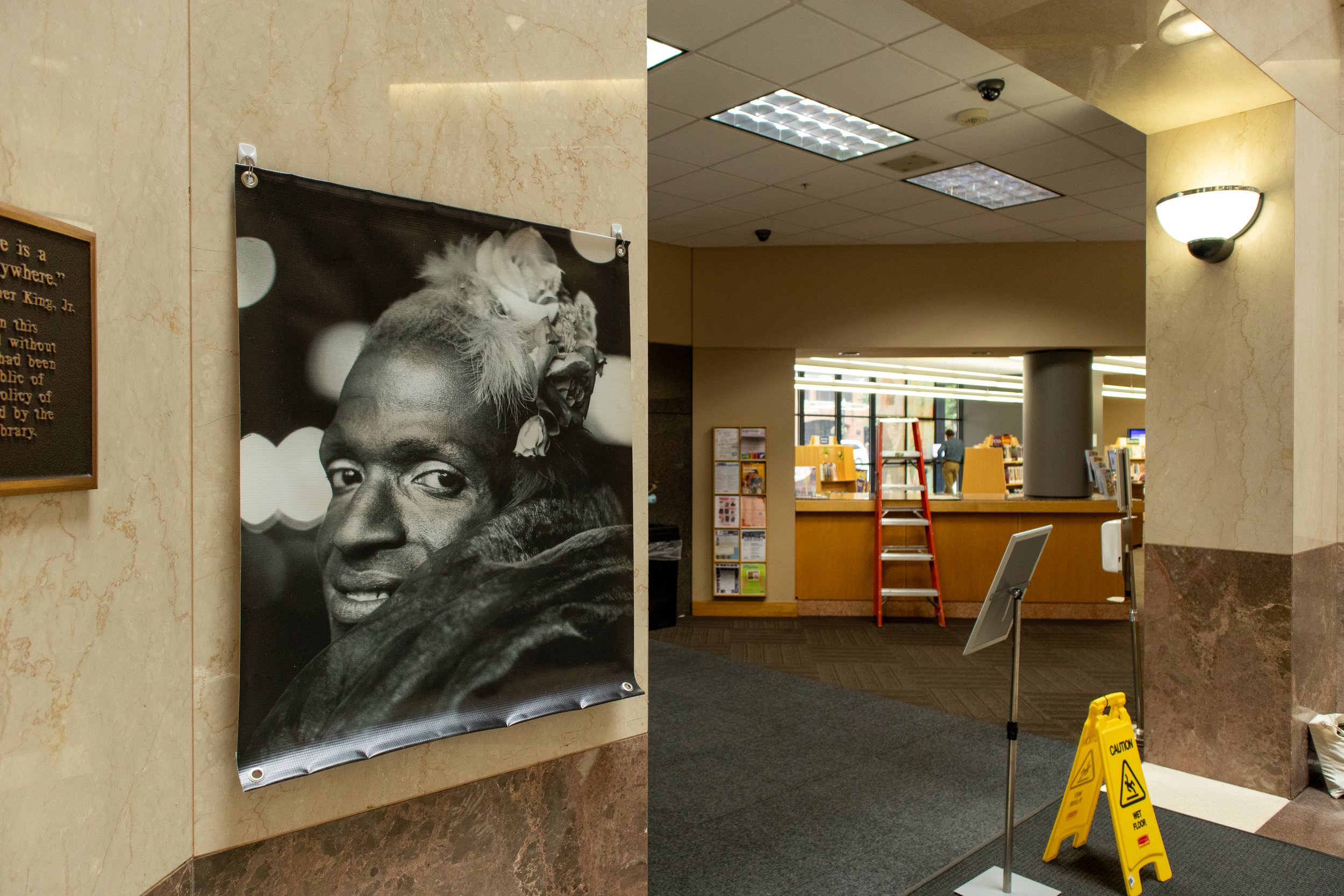


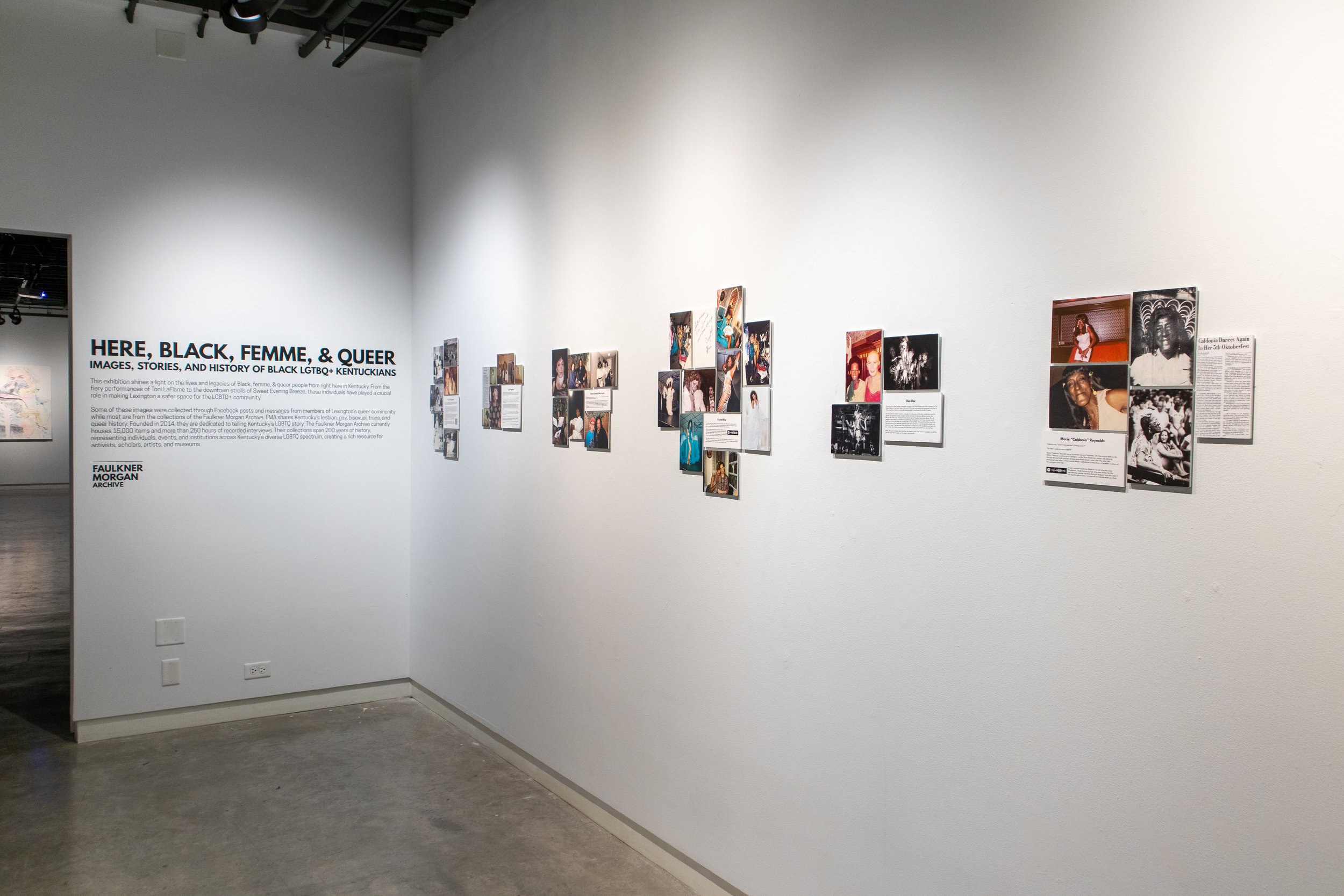


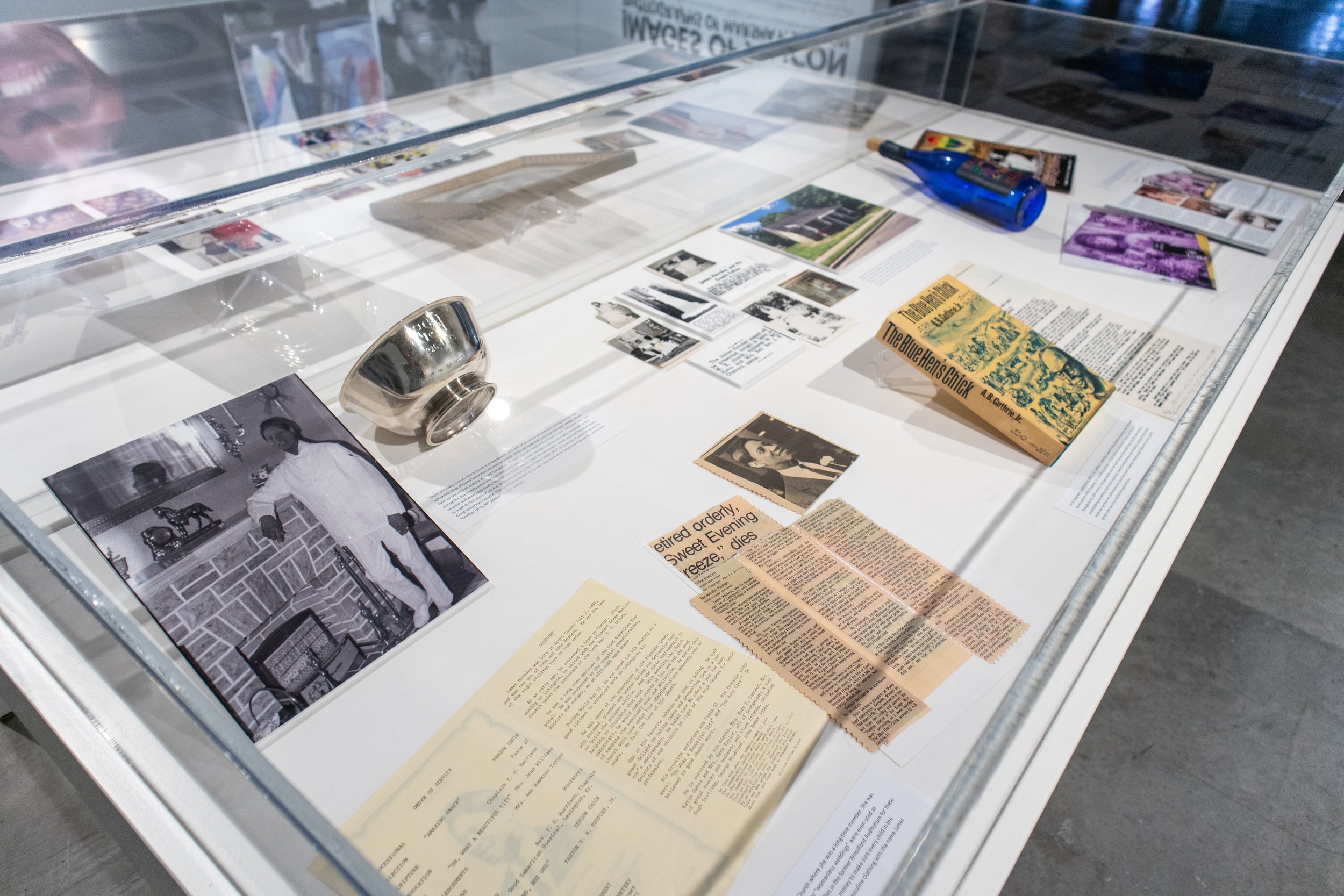


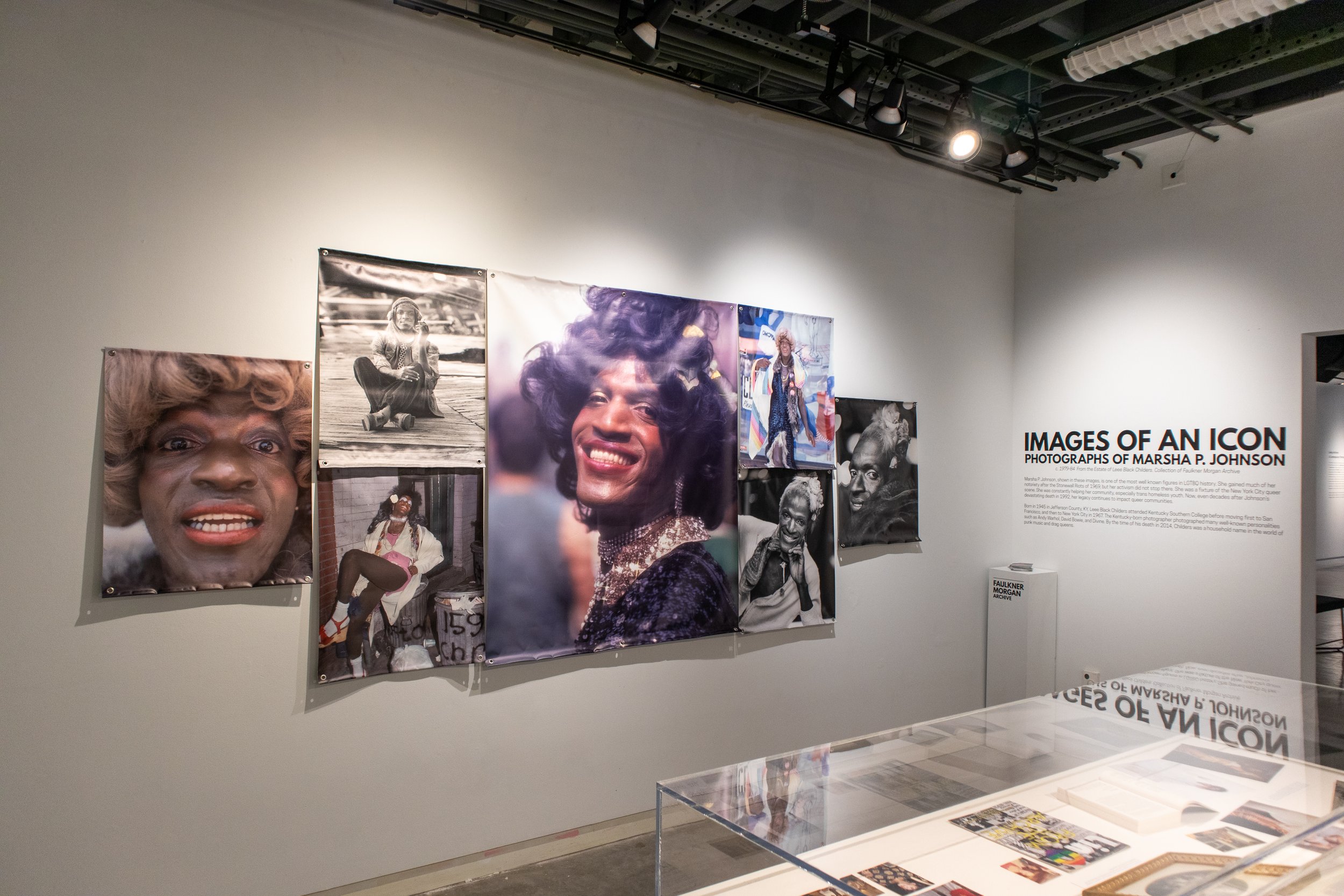
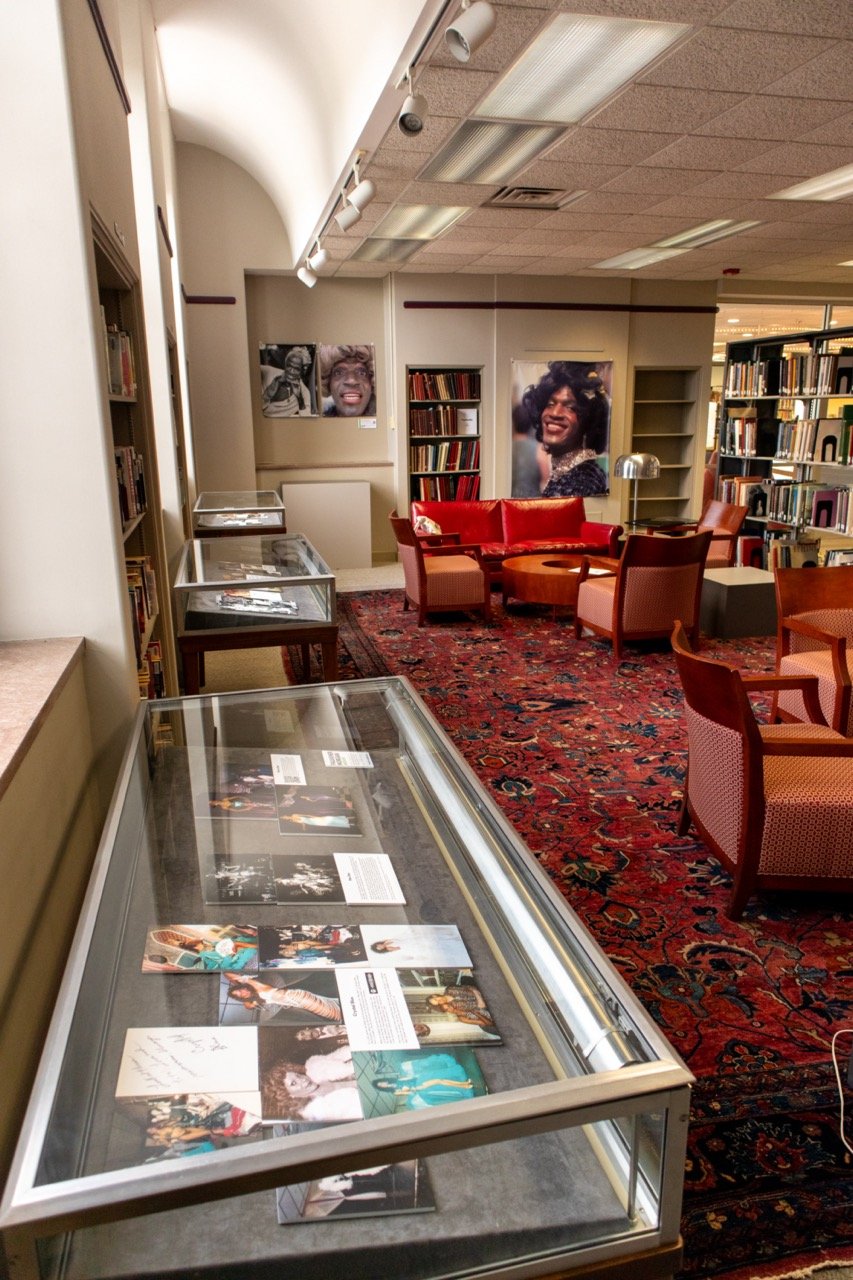
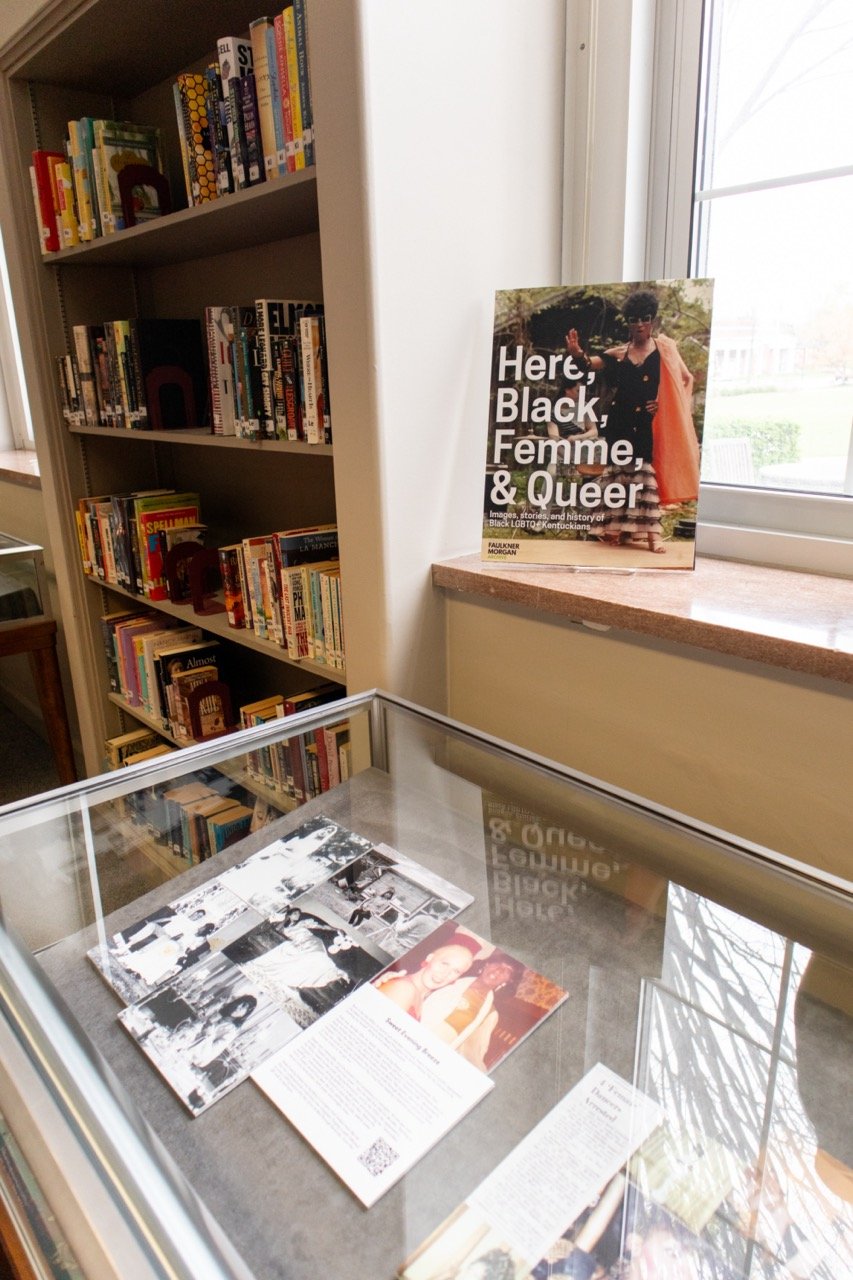
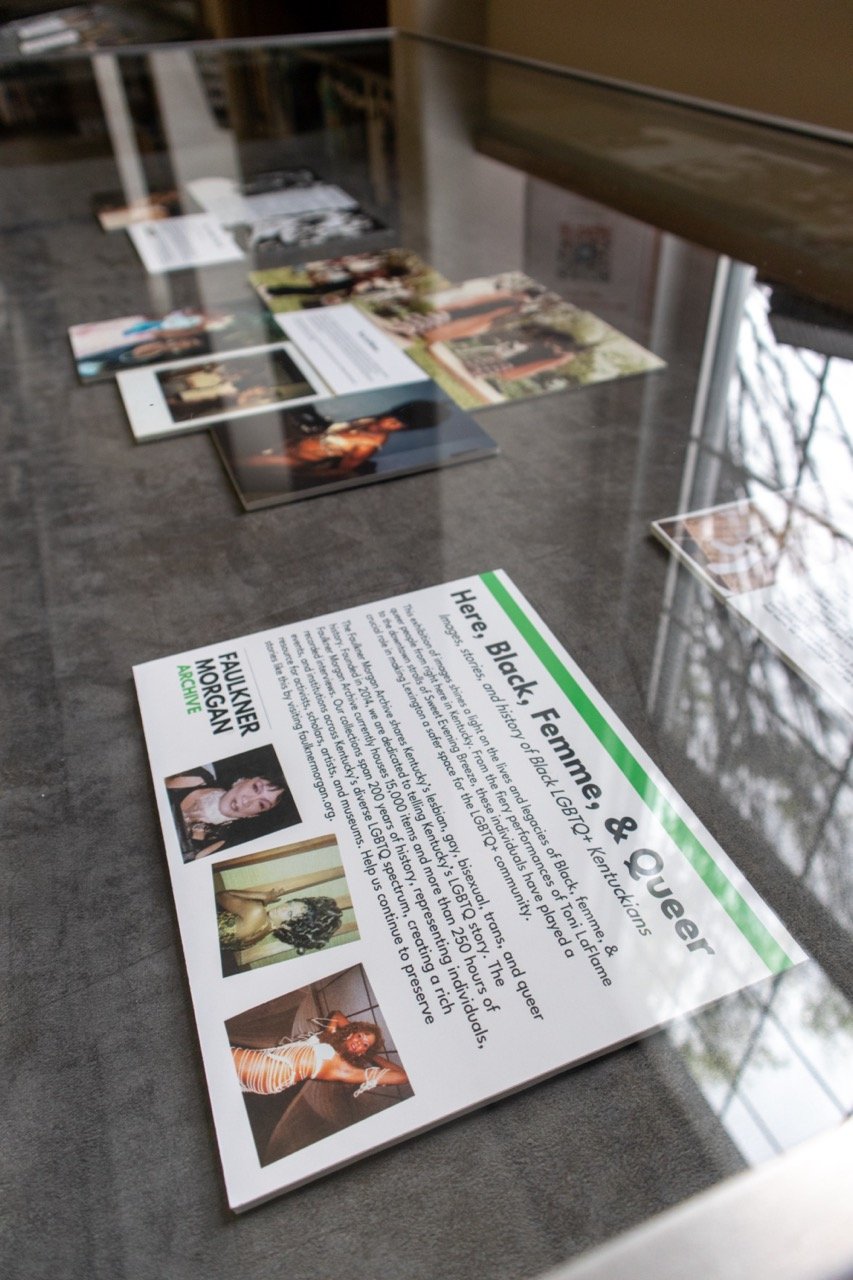
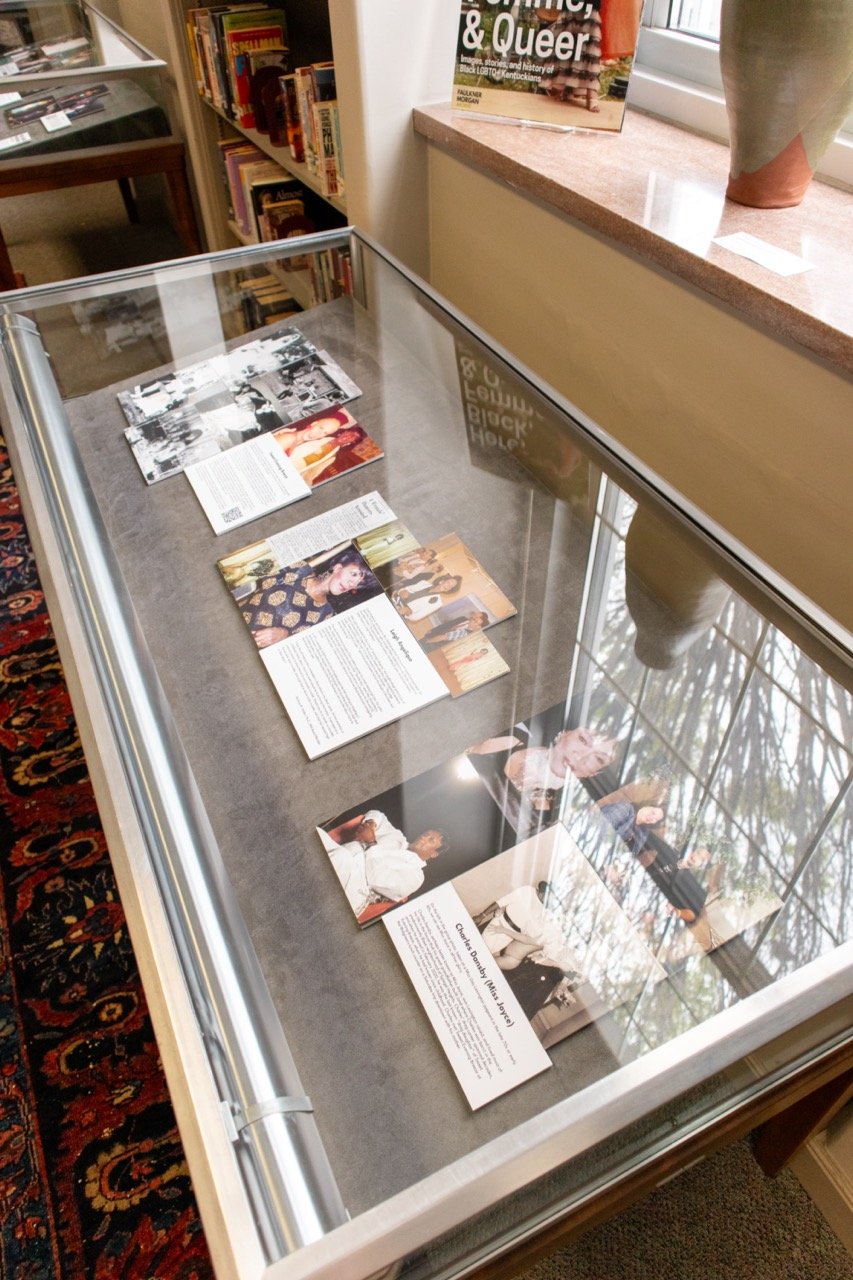
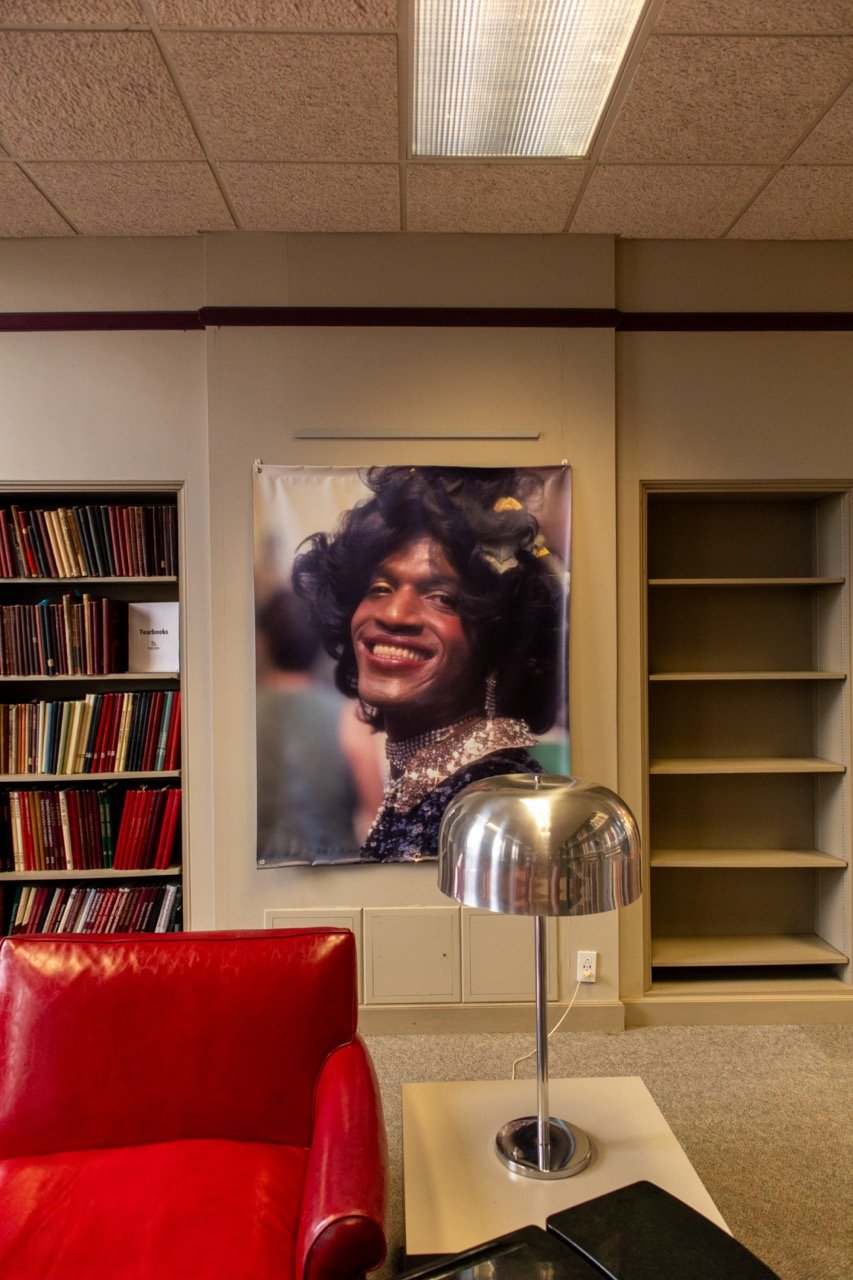
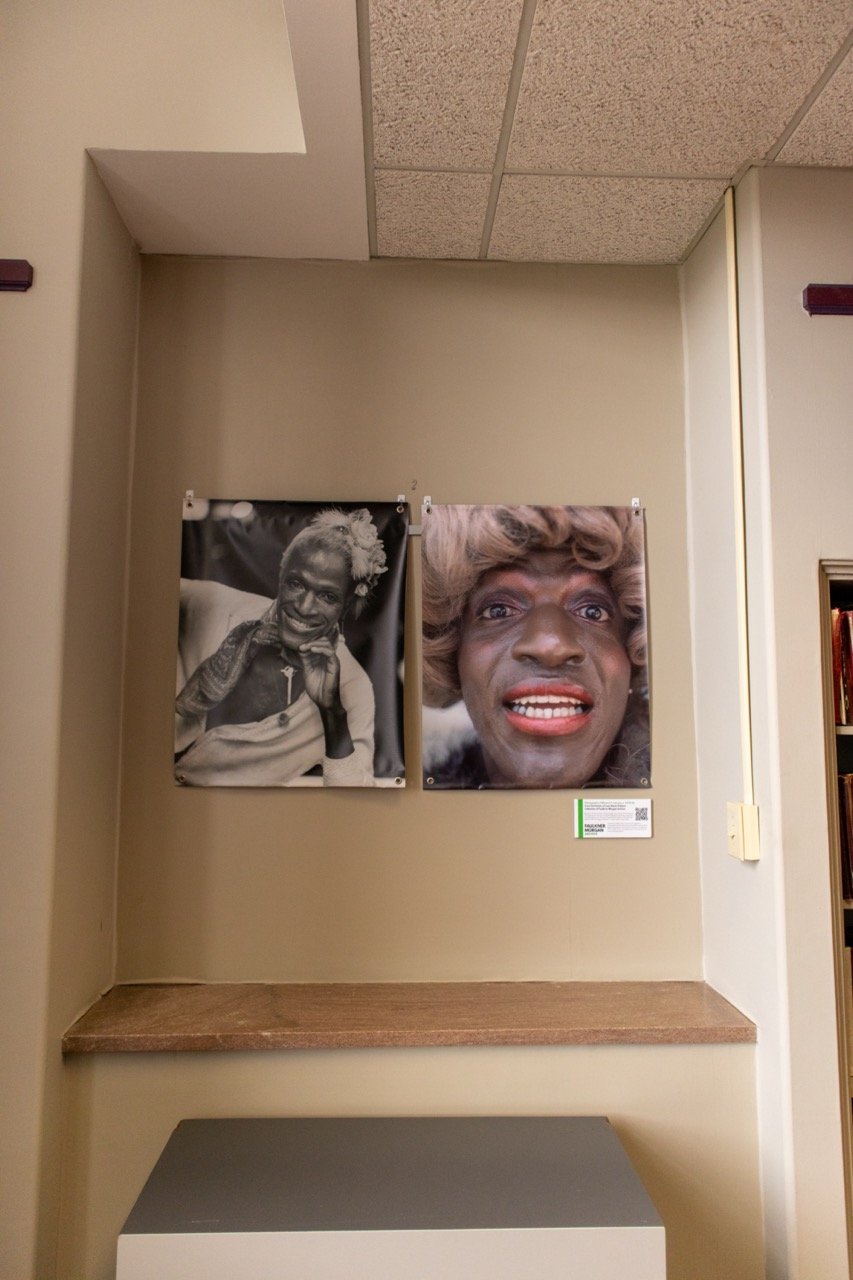
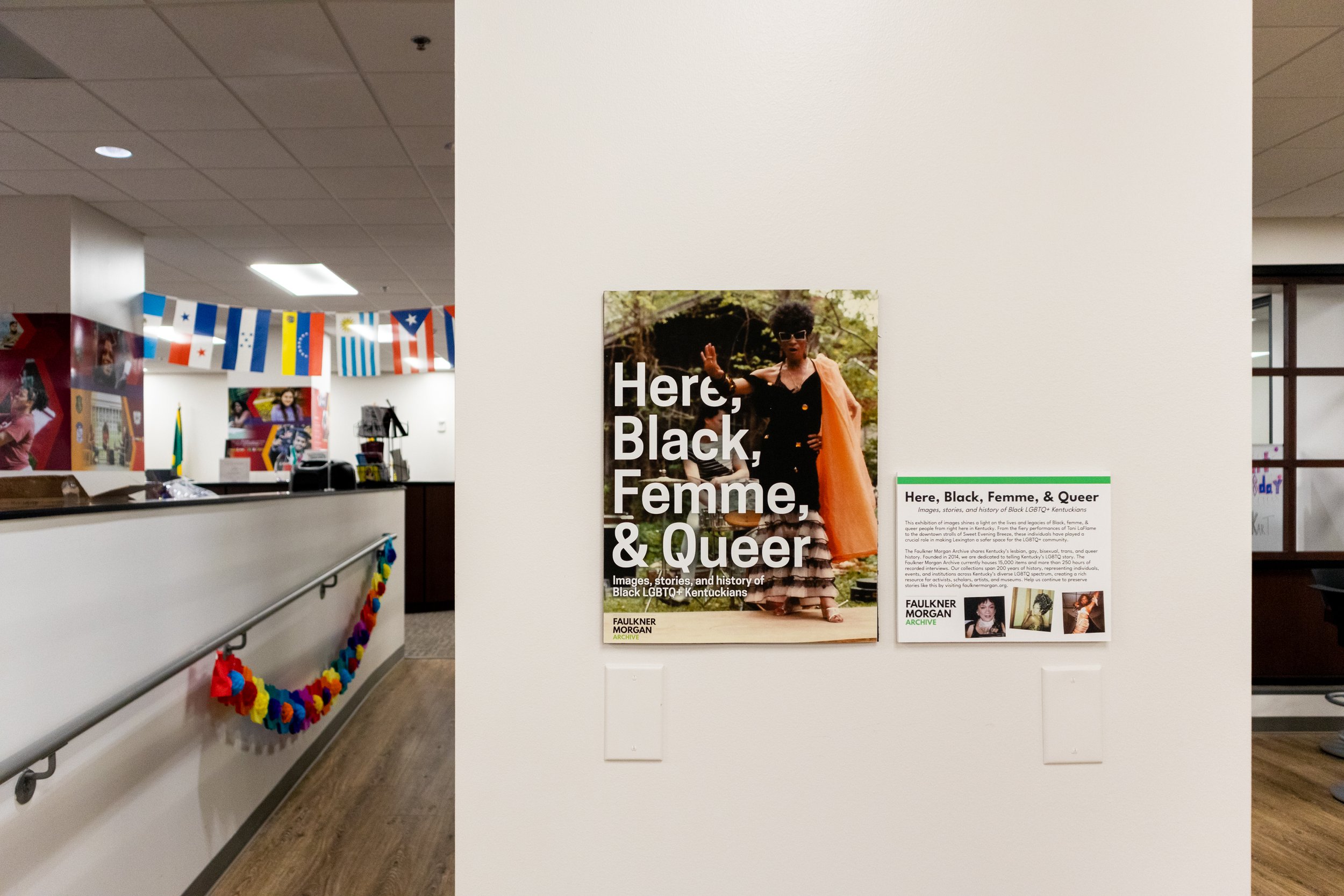
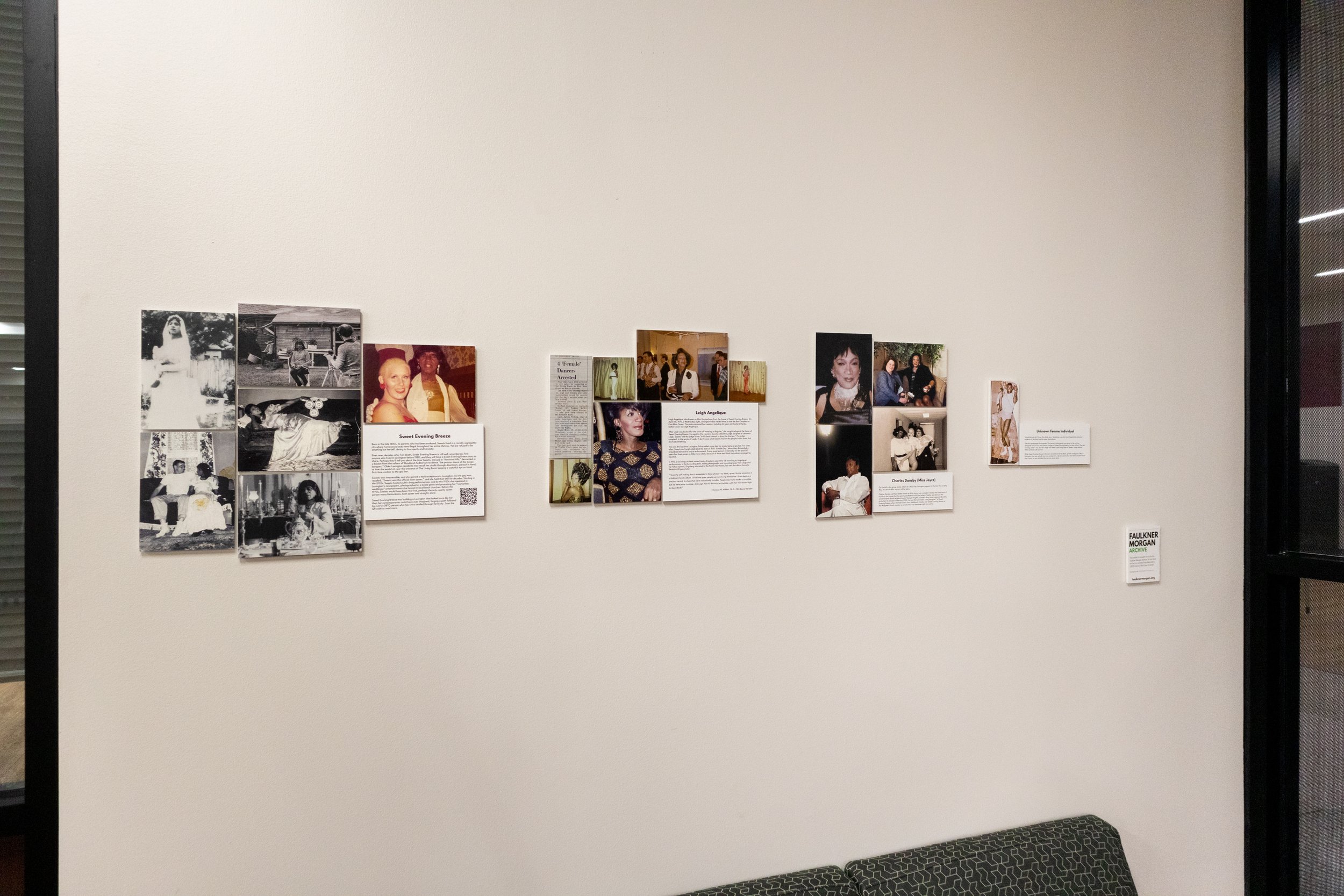
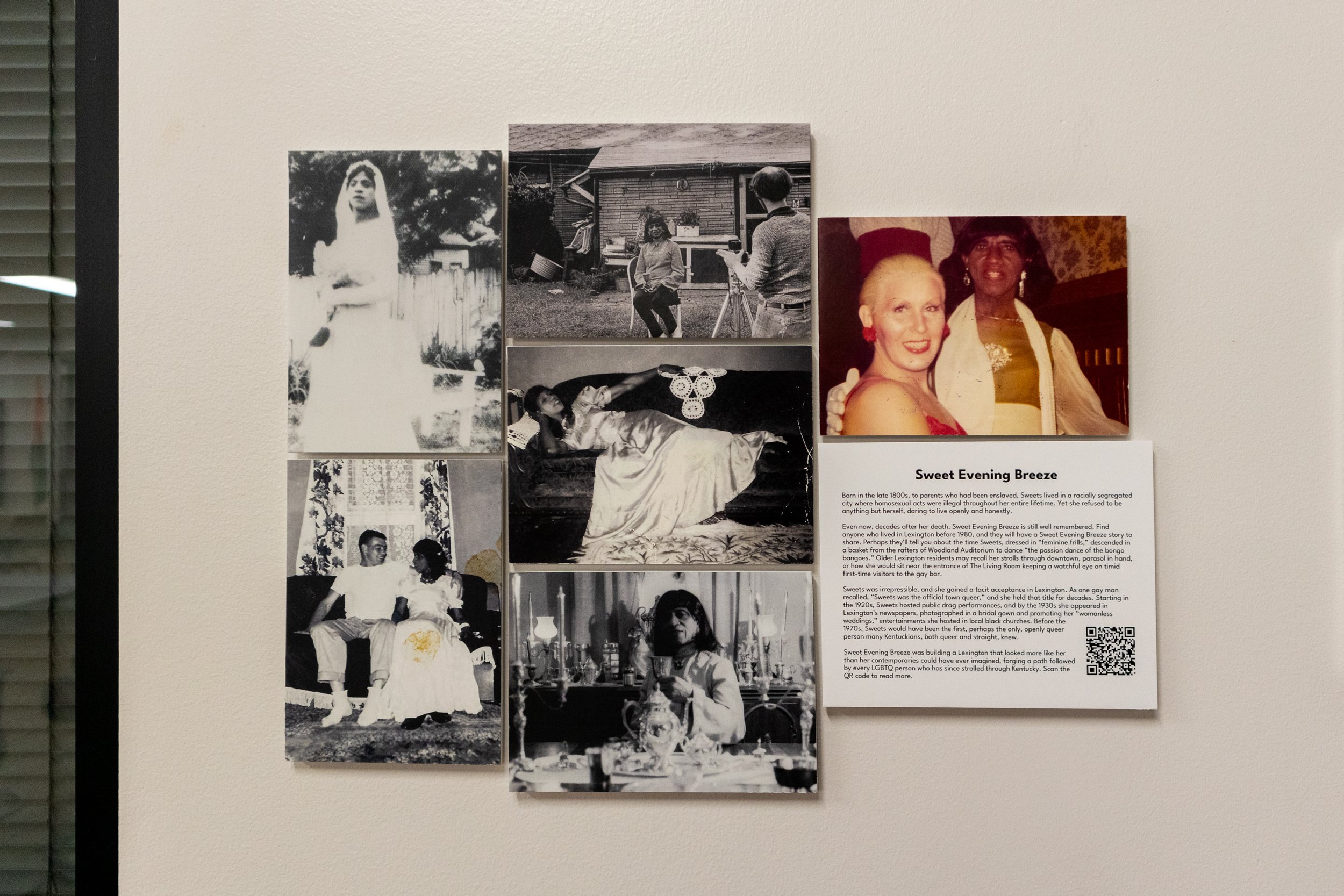
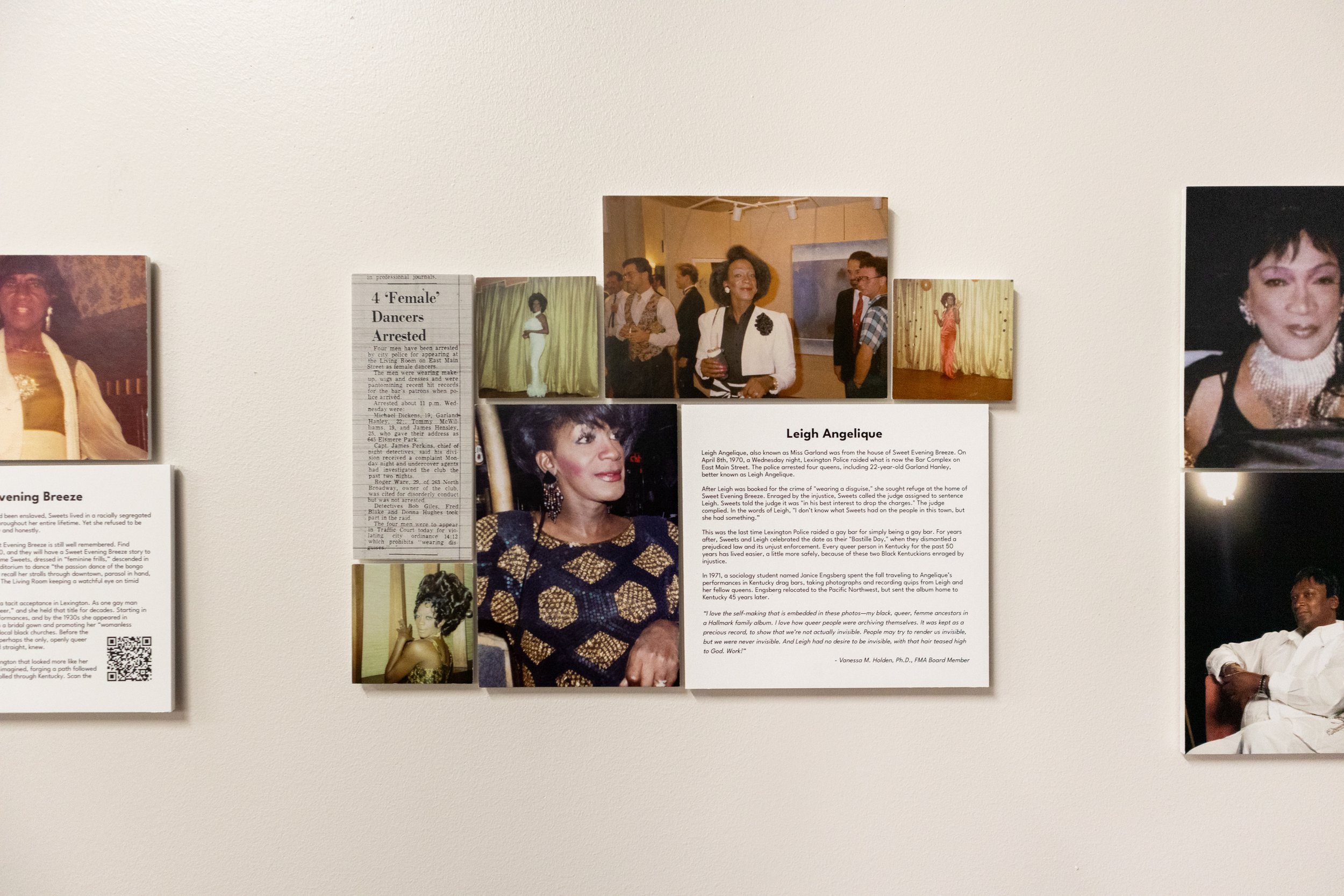


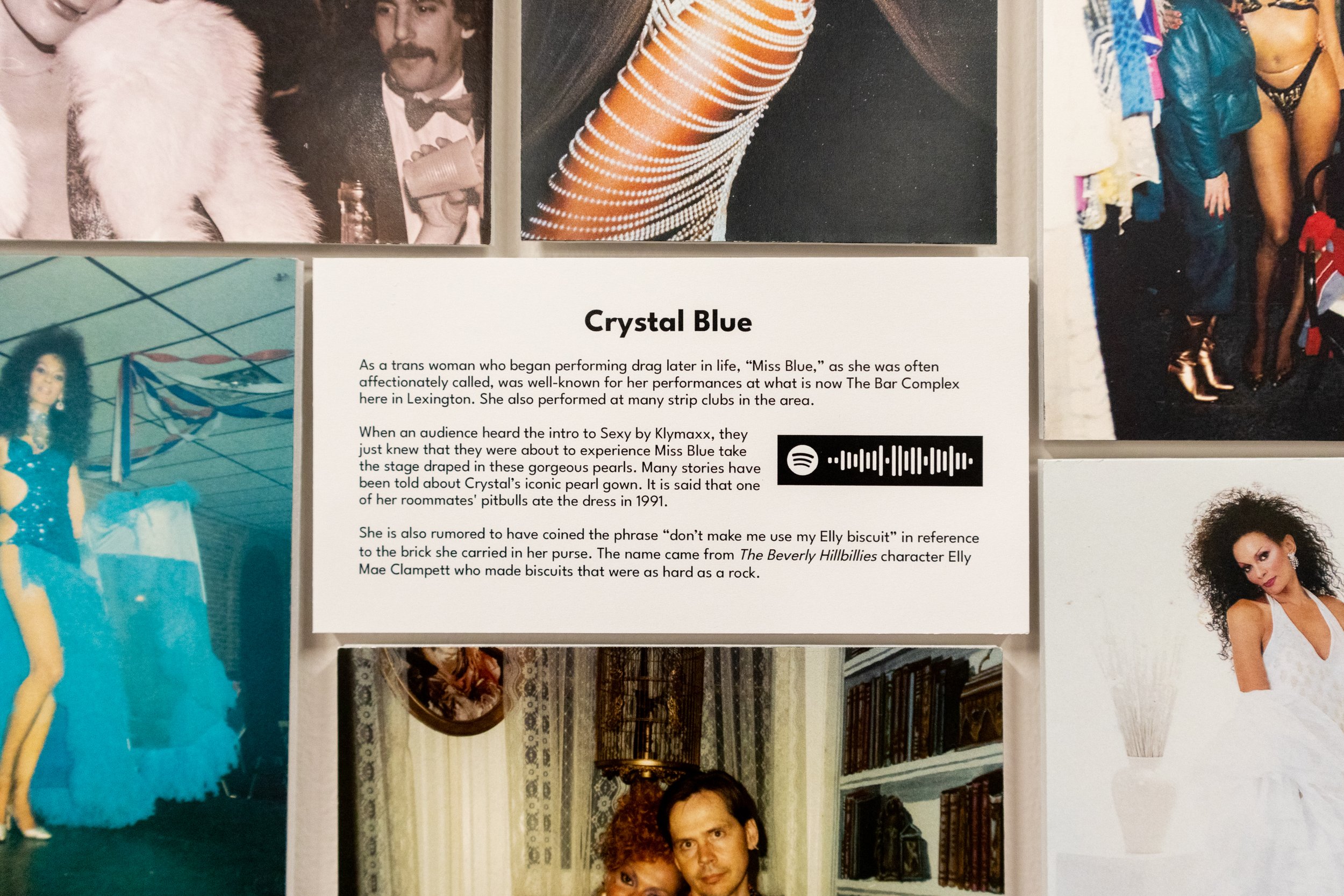

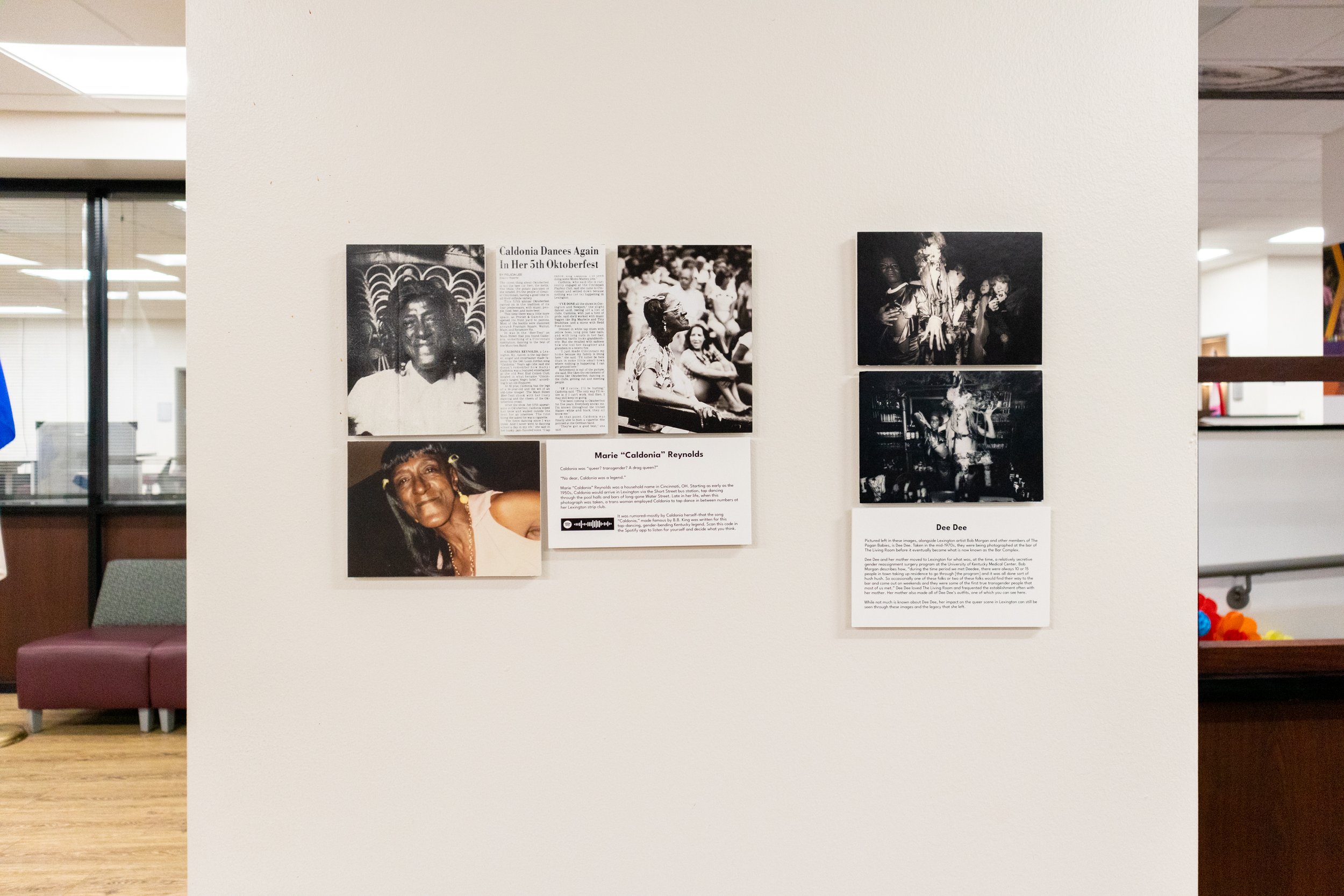

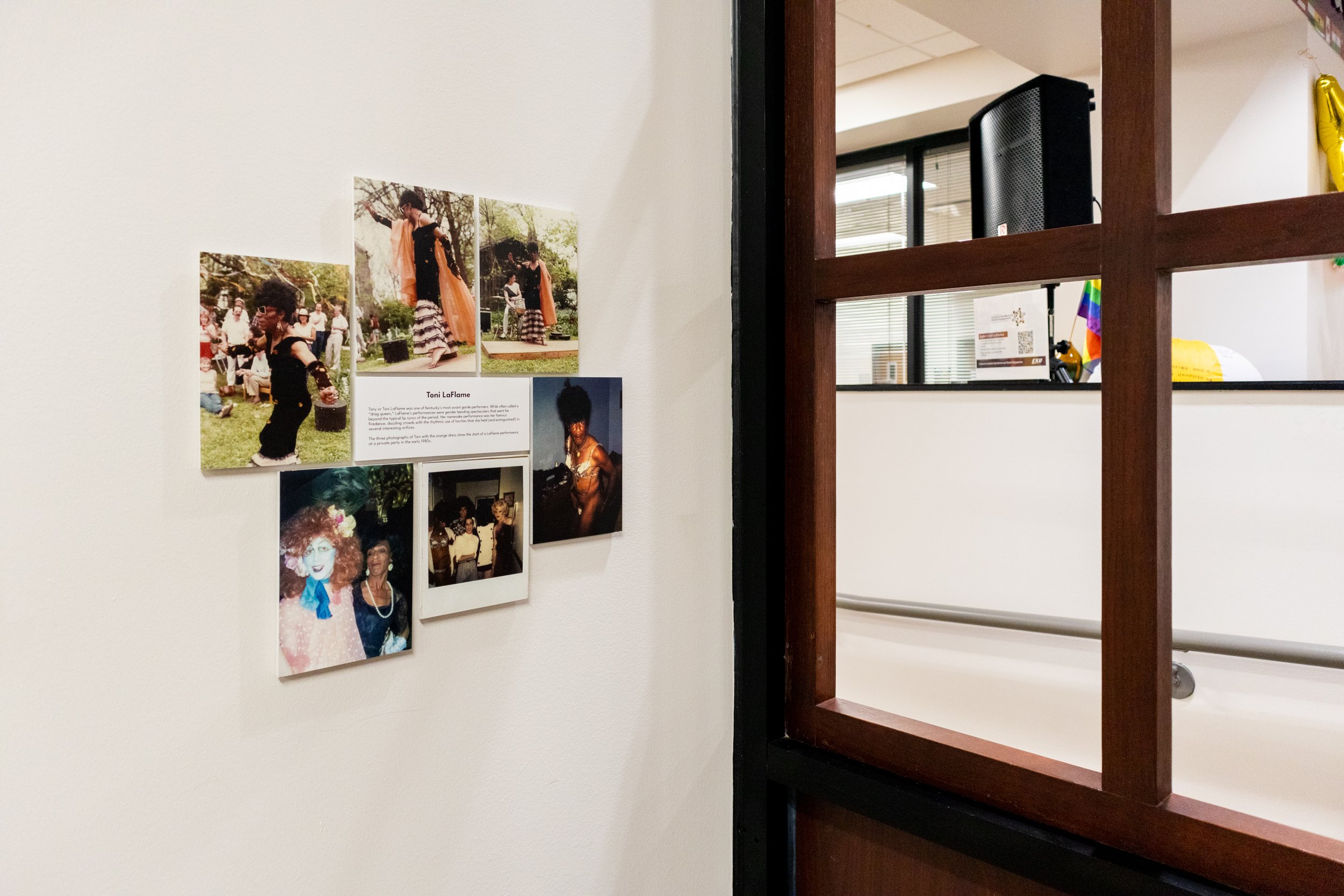

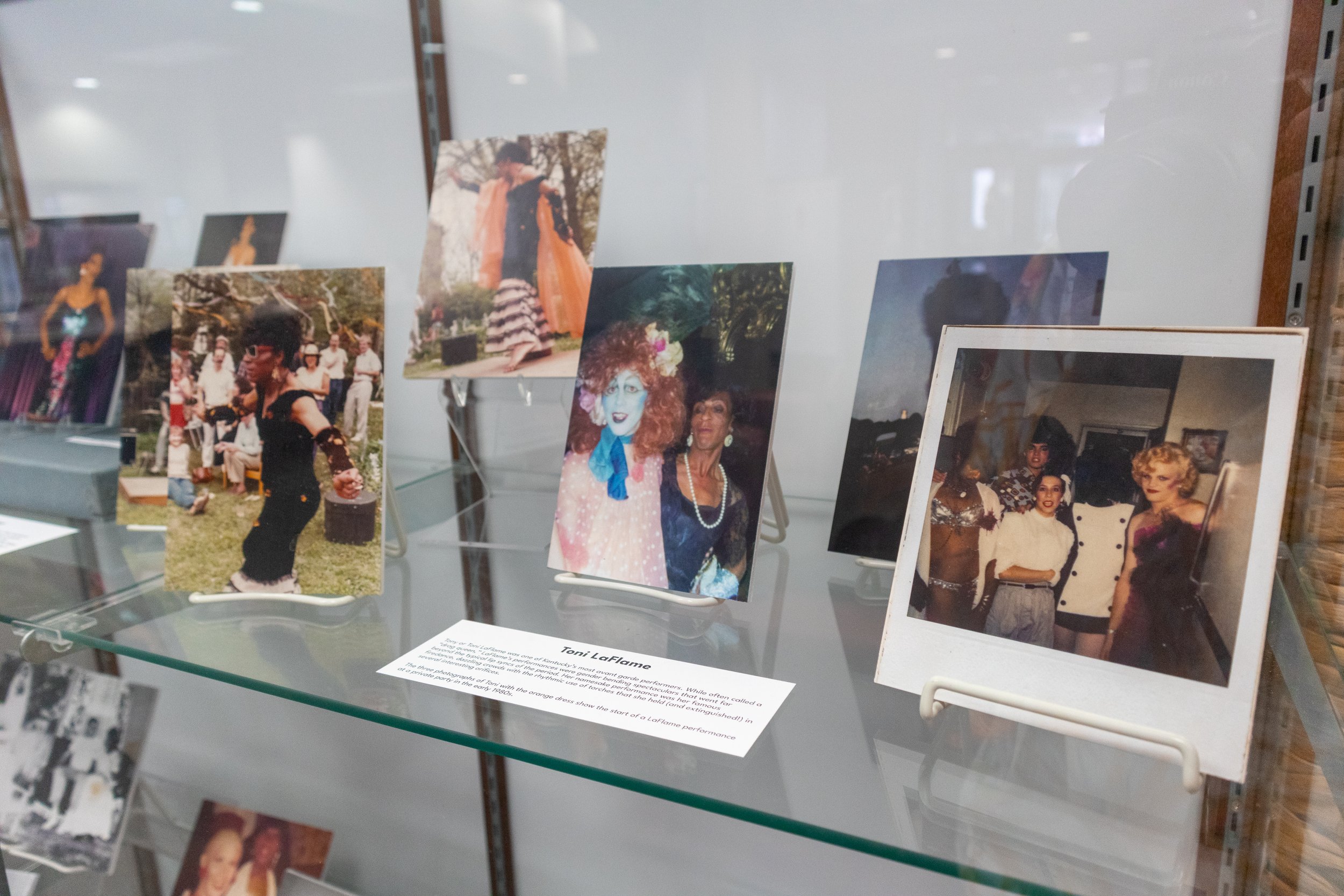



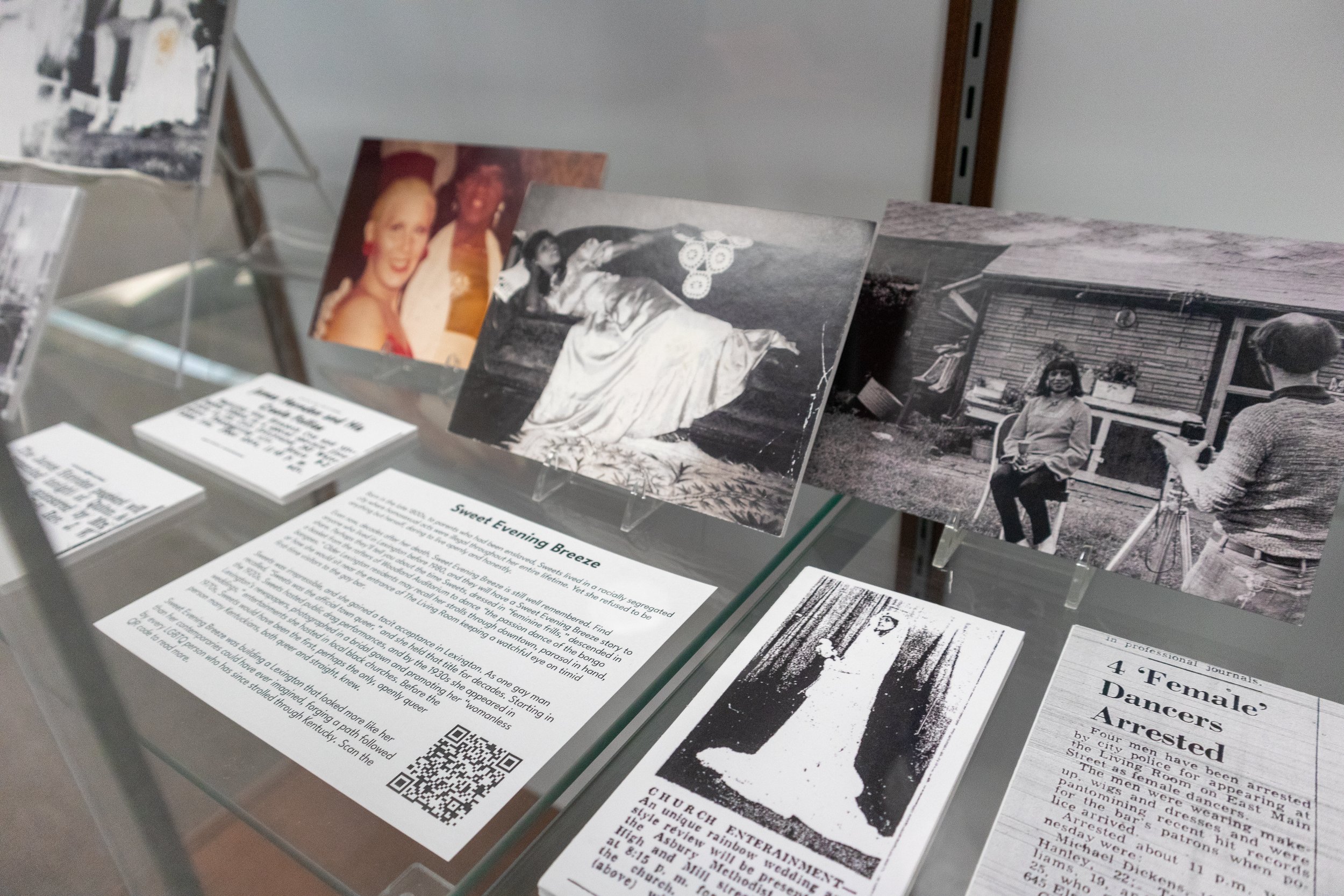


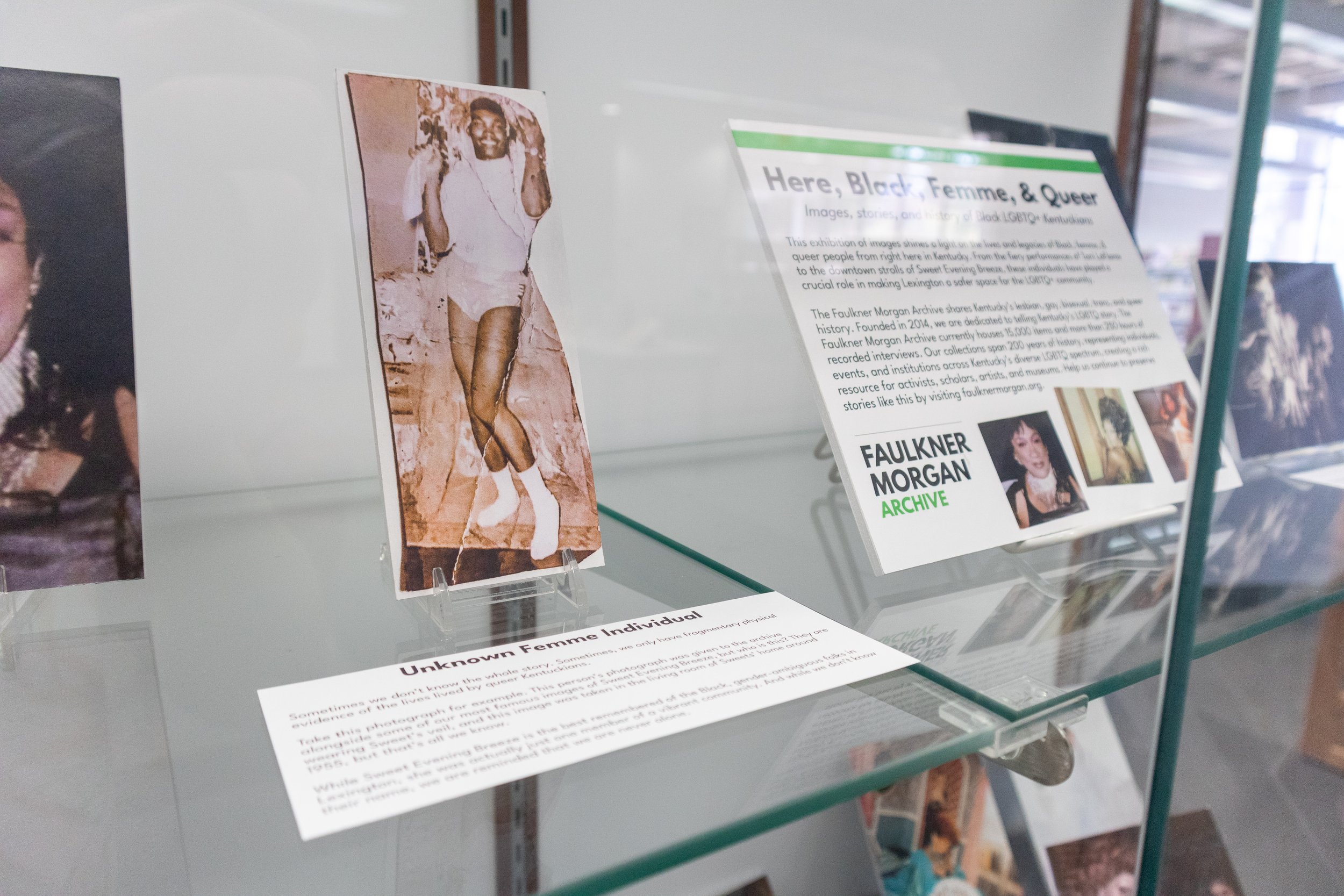
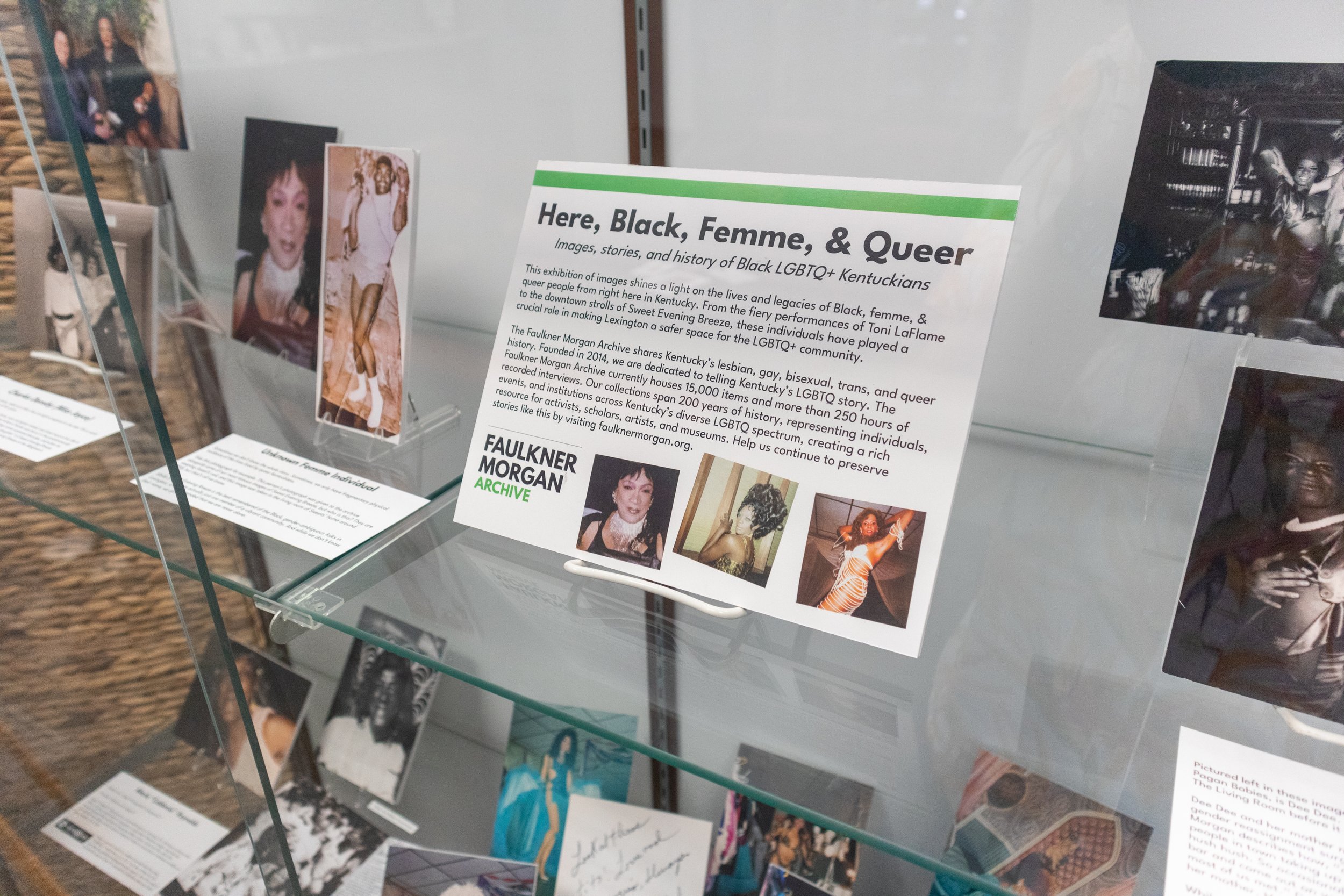

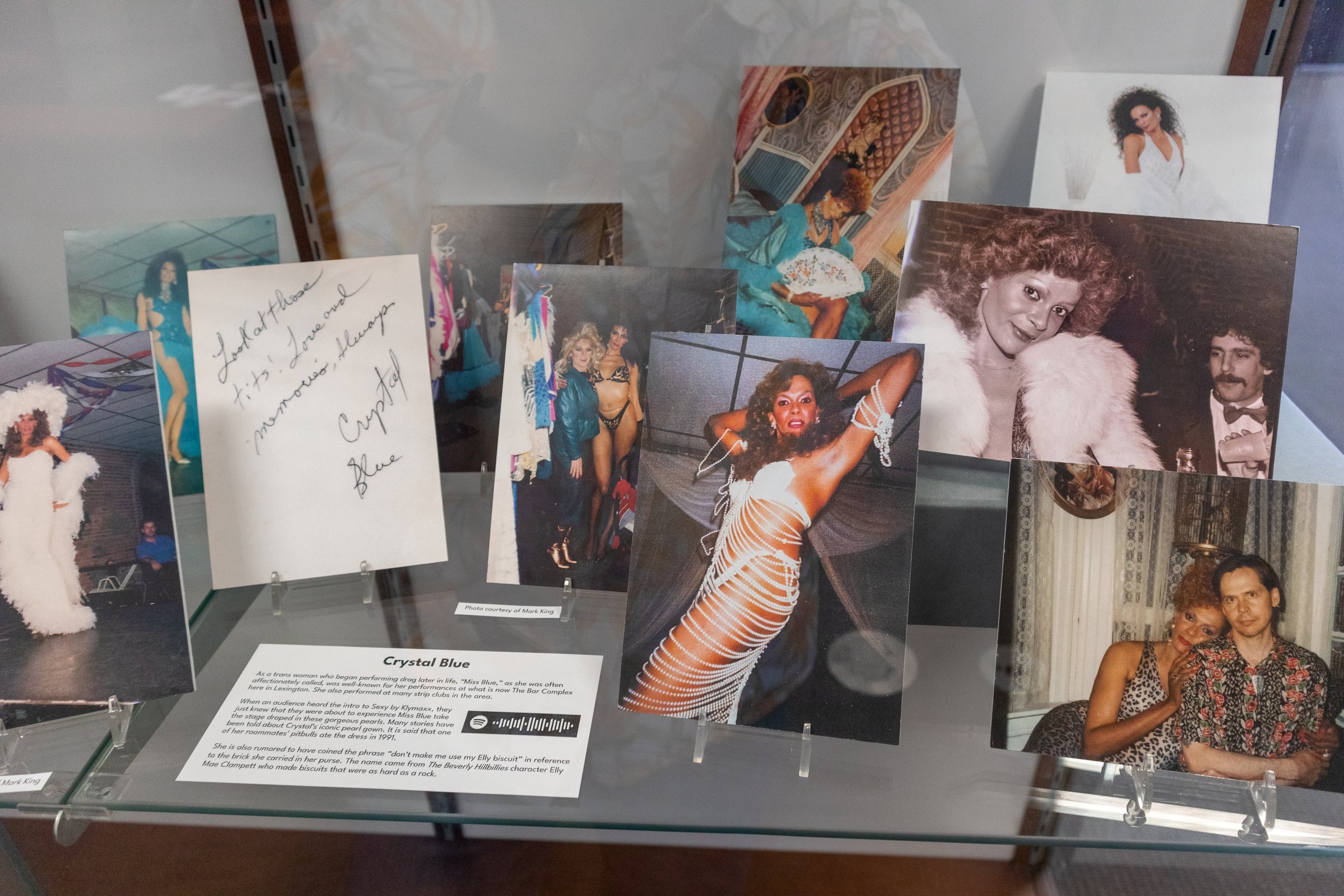
Sweet evening breeze
Born in the late 1800s, to parents who had been enslaved, Sweets lived in a racially segregated city where homosexual acts were illegal throughout her entire lifetime. Yet she refused to be anything but herself, daring to live openly and honestly.
Even now, decades after her death, Sweet Evening Breeze is still well remembered. Find anyone who lived in Lexington before 1980, and they will have a Sweet Evening Breeze story to share. Perhaps they’ll tell you about the time Sweets, dressed in “feminine frills,” descended in a basket from the rafters of Woodland Auditorium to dance “the passion dance of the bongo bangoes.” Older Lexington residents may recall her strolls through downtown, parasol in hand, or how she would sit near the entrance of The Living Room keeping a watchful eye on timid first-time visitors to the gay bar.
Sweets was irrepressible, and she gained a tacit acceptance in Lexington. As one gay man recalled, “Sweets was the official town queer,” and she held that title for decades. Starting in the 1920s, Sweets hosted public drag performances, and by the 1930s she appeared in Lexington’s newspapers, photographed in a bridal gown and promoting her “womanless weddings,” entertainments she hosted in local black churches. Before the 1970s, Sweets would have been the first, perhaps the only, openly queer person many Kentuckians, both queer and straight, knew.
Sweet Evening Breeze was building a Lexington that looked more like her than her contemporaries could have ever imagined, forging a path followed by every LGBTQ person who has since strolled through Kentucky. Click here to read more.
Leigh Angelique
Leigh Angelique was from the house of Sweet Evening Breeze. On April 8th, 1970, a Wednesday night, Lexington Police raided what is now the Bar Complex on East Main Street. The police arrested four queens, including 22-year-old Garland Hanley, better known as Leigh Angelique.
After Leigh was booked for the crime of "wearing a disguise," she sought refuge at the home of Sweet Evening Breeze. Enraged by the injustice, Sweets called the judge assigned to sentence Leigh. Sweets told the judge it was "in his best interest to drop the charges." The judge complied. In the words of Leigh, "I don’t know what Sweets had on the people in this town, but she had something.”
This was the last time Lexington Police raided a gay bar for simply being a gay bar. For years after, Sweets and Leigh celebrated the date as their "Bastille Day," when they dismantled a prejudiced law and its unjust enforcement. Every queer person in Kentucky for the past 50 years has lived easier, a little more safely, because of these two Black Kentuckians enraged by injustice.
In 1971, a sociology student named Janice Engsberg spent the fall traveling to Angelique’s performances in Kentucky drag bars, taking photographs and recording quips from Leigh and her fellow queens. Engsberg relocated to the Pacific Northwest, but sent the album home to Kentucky 45 years later.
“I love the self-making that is embedded in these photos—my black, queer, femme ancestors in a Hallmark family album. I love how queer people were archiving themselves. It was kept as a precious record, to show that we’re not actually invisible. People may try to render us invisible, but we were never invisible. And Leigh had no desire to be invisible, with that hair teased high to God. Work!”
- Vanessa M. Holden, Ph.D., FMA Board Member
Toni LaFlame
Tony or Toni LaFlame was one of Kentucky’s most avant garde performers. While often called a “drag queen,” LaFlame’s performances were gender bending spectaculars that went far beyond the typical lip syncs of the period. Her namesake performance was her famous firedance, dazzling crowds with the rhythmic use of torches that she held (and extinguished!) in several interesting orifices.
The three photographs of Toni with the orange dress show the start of a LaFlame performance at a private party in the early 1980s.
Crystal Blue
As a trans woman who began performing drag later in life, “Miss Blue,” as she was often affectionately called, was well-known for her performances at what is now The Bar Complex here in Lexington. She also performed at many strip clubs in the area.
When an audience heard the intro to Sexy by Klymaxx, they just knew that they were about to experience Miss Blue take the stage draped in these gorgeous pearls. Many stories have been told about Crystal’s iconic pearl gown. It is said that one of her roommates' pitbulls ate the dress in 1991.
She is also rumored to have coined the phrase “don’t make me use my Elly biscuit” in reference to the brick she carried in her purse. The name came from The Beverly Hillbillies character Elly Mae Clampett who made biscuits that were as hard as a rock.
Charles Dansby (Miss Joyce)
On the left in the group photo, taken at a Miss Gay Lexington pageant in the late 70s or early 80s, we can see Miss Joyce in all her glory.
Charles, perhaps better known as Miss Joyce, was Lexington raised, and lived most of his life in the house that his great-grandfather built (and where Charles was born) in the predominantly Black neighborhood of Spiegel Heights. Charles’ drag career spanned decades, and when he passed in February 2020, he was the last known “drag daughter” of Sweet Evening Breeze, whom he had known since childhood. Charles met Sweet Evening Breeze at the Walgreen's lunch counter on a Saturday trip downtown with his mother.
Marie “Caldonia” Reynolds
Caldonia was “queer? transgender? A drag queen?”
“No dear, Caldonia was a legend.”
Marie “Caldonia” Reynolds was a household name in Cincinnati, OH. Starting as early as the 1950s, Caldonia would arrive in Lexington via the Short Street bus station, tap dancing through the pool halls and bars of long-gone Water Street. Late in her life, when this photograph was taken, a trans woman employed Caldonia to tap dance in between numbers at her Lexington strip club.
It was rumored–mostly by Caldonia herself–that the song “Caldonia,” made famous by B.B. King was written for this tap-dancing, gender-bending Kentucky legend. Scan this code in the Spotify app to listen for yourself and decide what you think.
Rayna Starr
Since starting to perform in drag in the early 90s, Rayna has become a Lexington staple. Rayna Starr is the drag persona of Lexington native Ben Salyers. From the 1990s to the early 2010s, you could find her performing on stage at The Bar Complex alongside queens like Crystal Blue, Jerrica James, Ashley Kruiz, Rhonda K. Steele, Brandi Michaels, and Chelsea Pearl. She was part of “The Gilded Cage Divas” for over 25 years! Rayna can still be found performing in shows all around Lexington and was recently recognized with the Stonewall Honors Award from Kentucky Black Pride. Click here to watch Rayna perform Rockin' Chair by Gwen McCrae at The Bar Complex in 2012.
Dee Dee
Pictured left in these images, alongside Lexington artist Bob Morgan and other members of The Pagan Babies, is Dee Dee. Taken in the mid-1970s, they were being photographed at the bar of The Living Room before it eventually became what is now known as the Bar Complex.
Dee Dee and her mother moved to Lexington for what was, at the time, a relatively secretive gender reassignment surgery program at the University of Kentucky Medical Center. Bob Morgan describes how, “during the time period we met Deedee, there were always 10 or 15 people in town taking up residence to go through [the program] and it was all done sort of hush hush. So occasionally one of these folks or two of these folks would find their way to the bar and come out on weekends and they were some of the first true transgender people that most of us met.” Dee Dee loved The Living Room and frequented the establishment often with her mother. Her mother also made all of Dee Dee’s outfits, one of which you can see here.
While not much is known about Dee Dee, her impact on the queer scene in Lexington can still be seen through these images and the legacy that she left.
Unknown Femme Individual
Sometimes we don’t know the whole story. Sometimes, we only have fragmentary physical evidence of the lives lived by queer Kentuckians.
Take this photograph for example. This person’s photograph was given to the archive alongside some of our most famous images of Sweet Evening Breeze, but who is this? They are wearing Sweets’ veil, and this image was taken in the living room of Sweets’ home around 1955, but that’s all we know.
While Sweet Evening Breeze is the best remembered of the Black, gender-ambiguous folks in Lexington, she was actually just one member of a vibrant community. And while we don’t know their name, we are reminded that we are never alone.
Images Of An Icon:
Photographs of Marsha P. Johnson
In addition to these images of Black, femme, & queer Kentuckians, this exhibition also features recently unveiled photographs of Marsha P. Johnson from the estate of renowned Kentucky-born photographer Lee Black Childers. You can read more about these images on the Faulker Morgan Archive’s blog.
